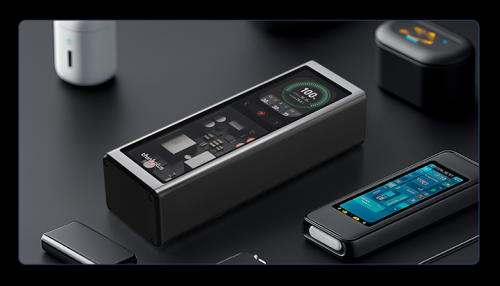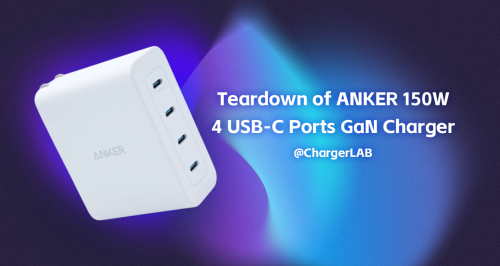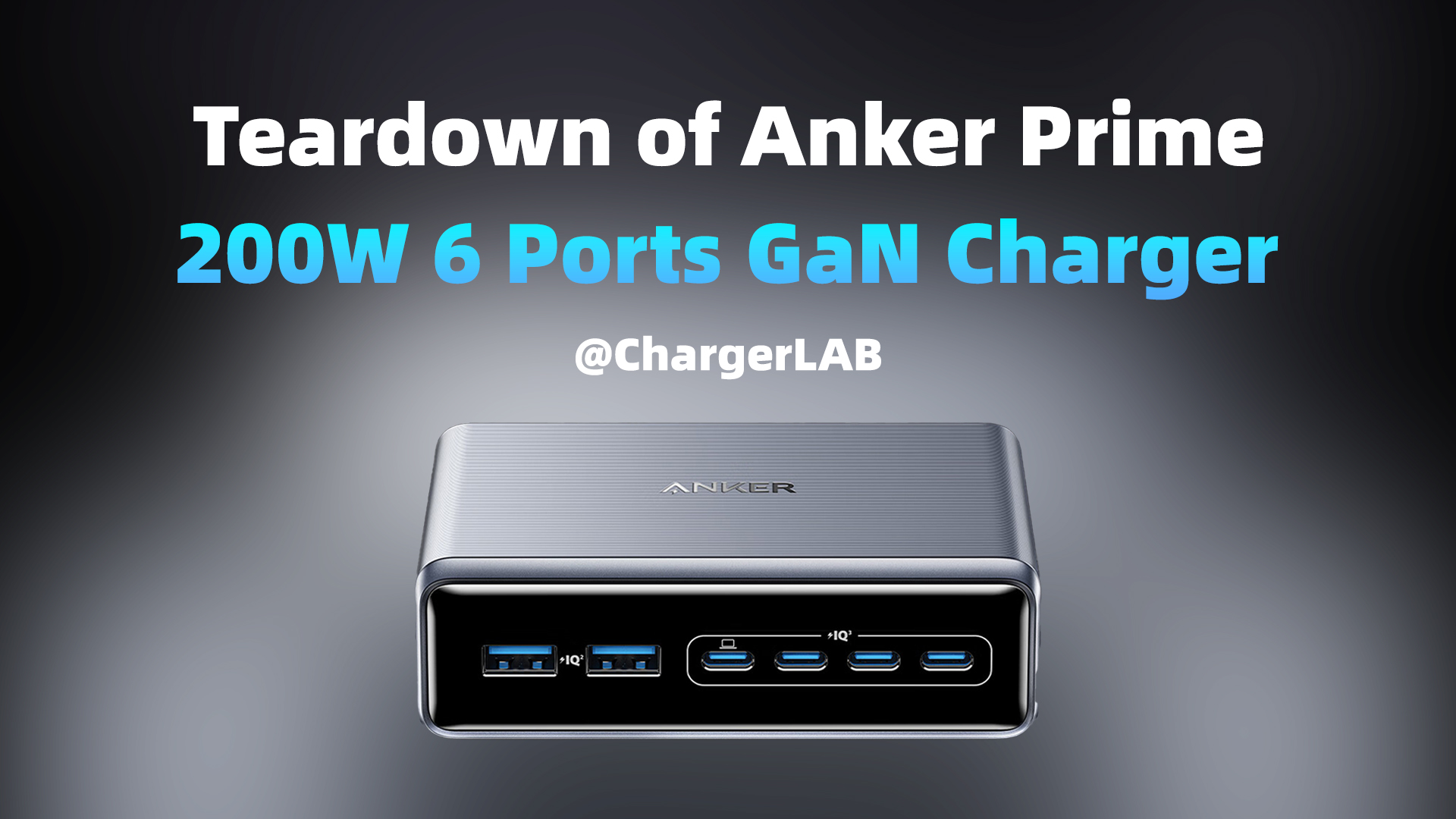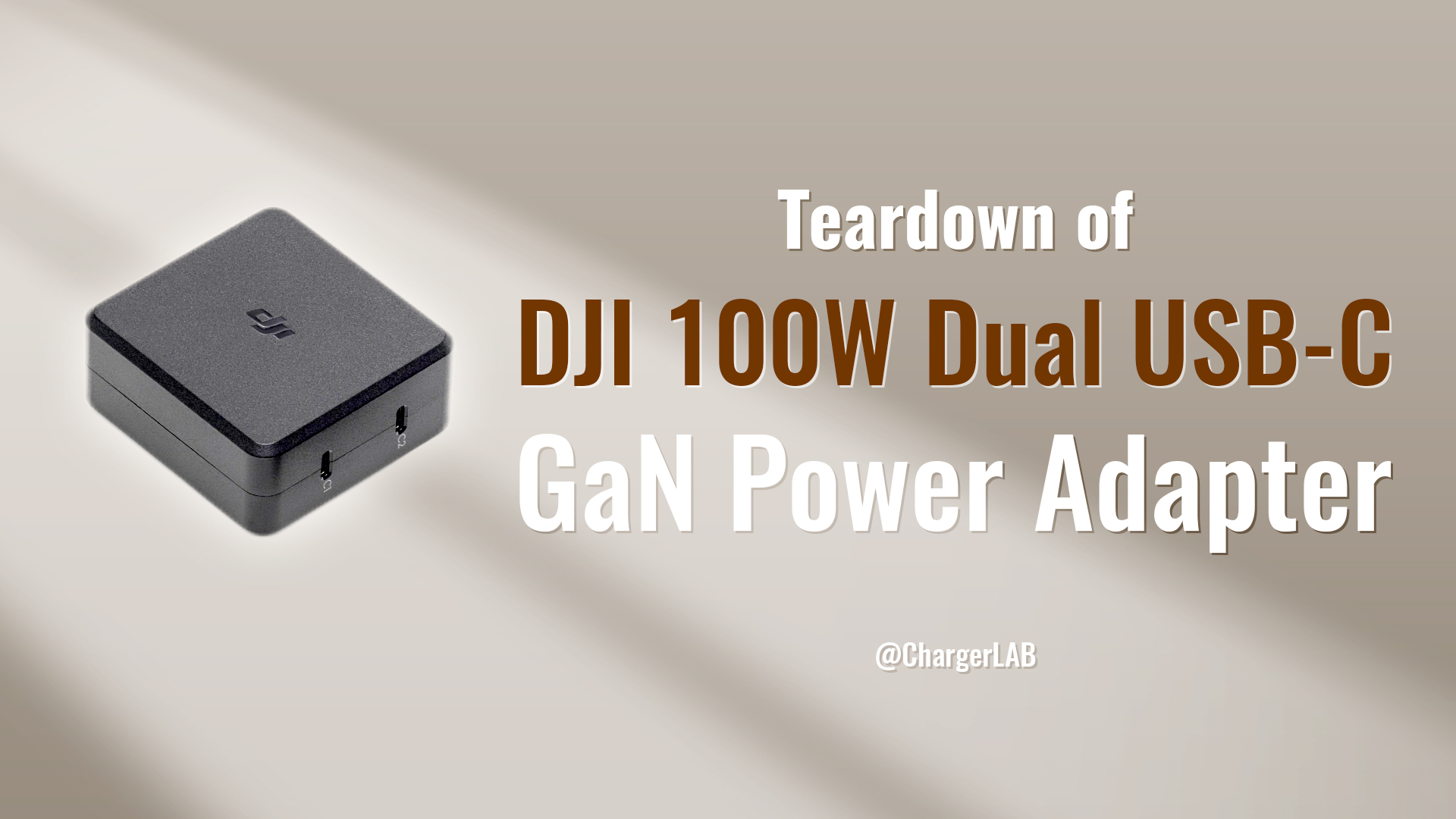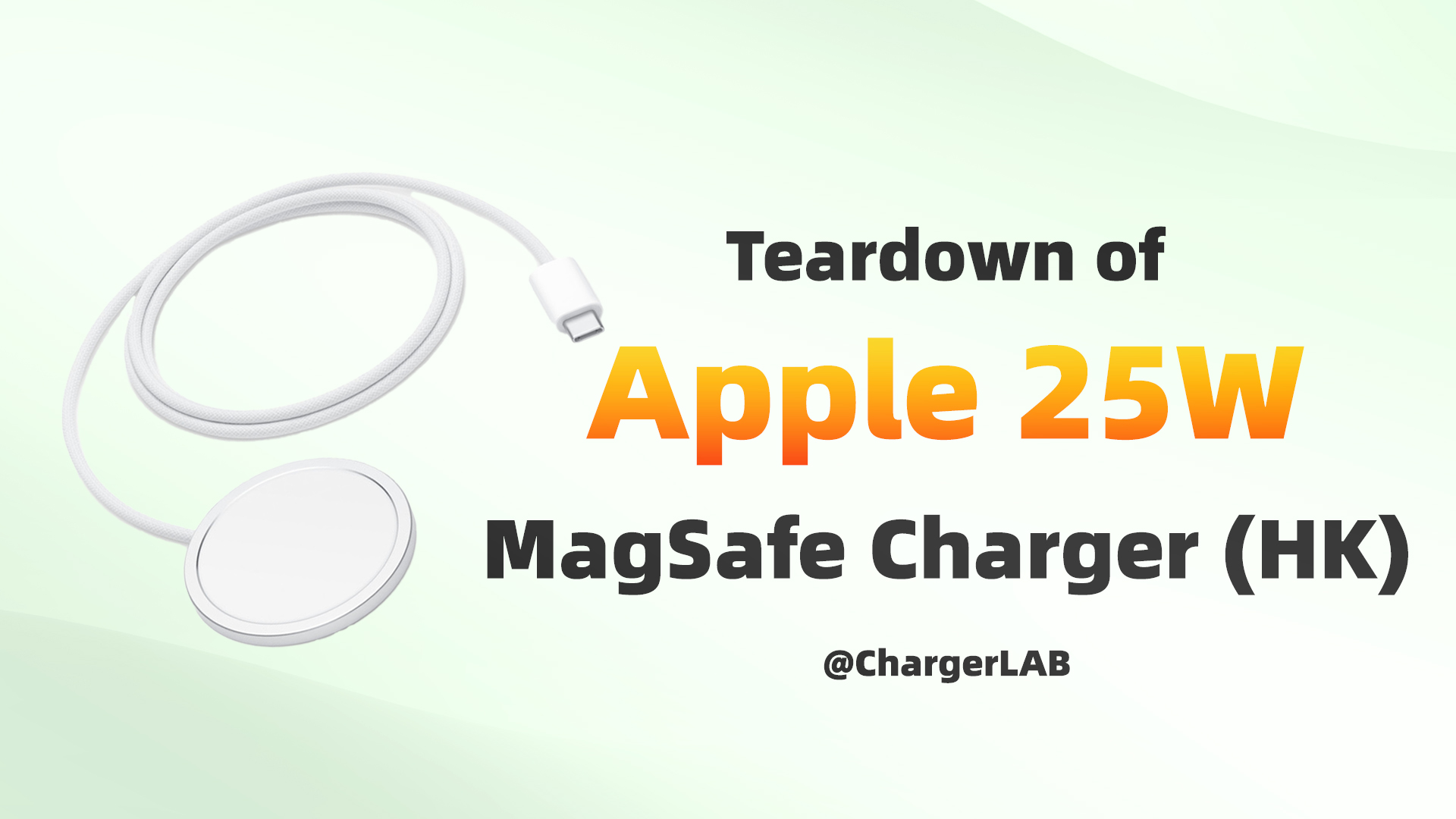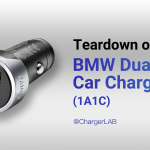Introduction
Following the Power Delivery 3.0 standard, the USB-IF introduced its latest PD 3.1 specification in May 2021. New features include EPR, which was added to expand the maximum power of the PD 3.0 power supply from 100W all the way to 240W (48V 5A). And today, we got our hands on a 240W USB-C cable from Baseus, which supports the latest PD 3.1 specification.
Product Appearance
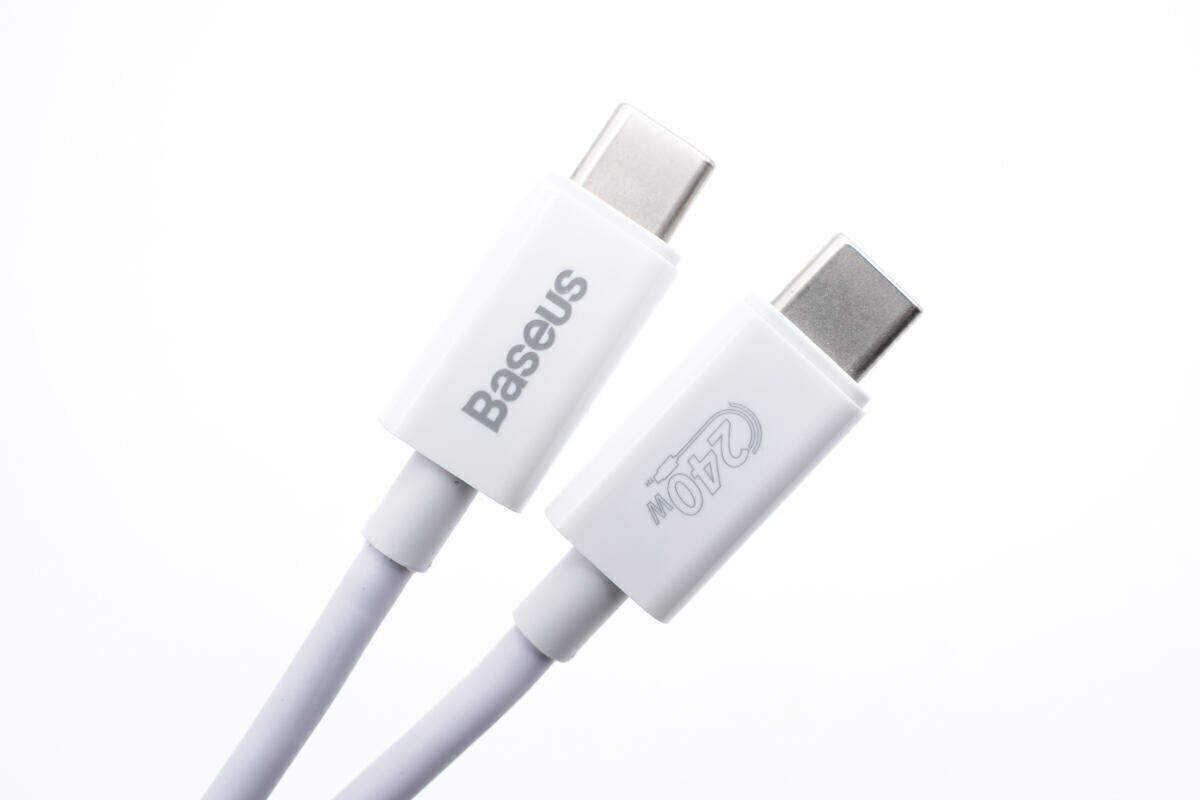
The white cable adopts a glossy TPE design with Baseus and 240W printed on both ends.
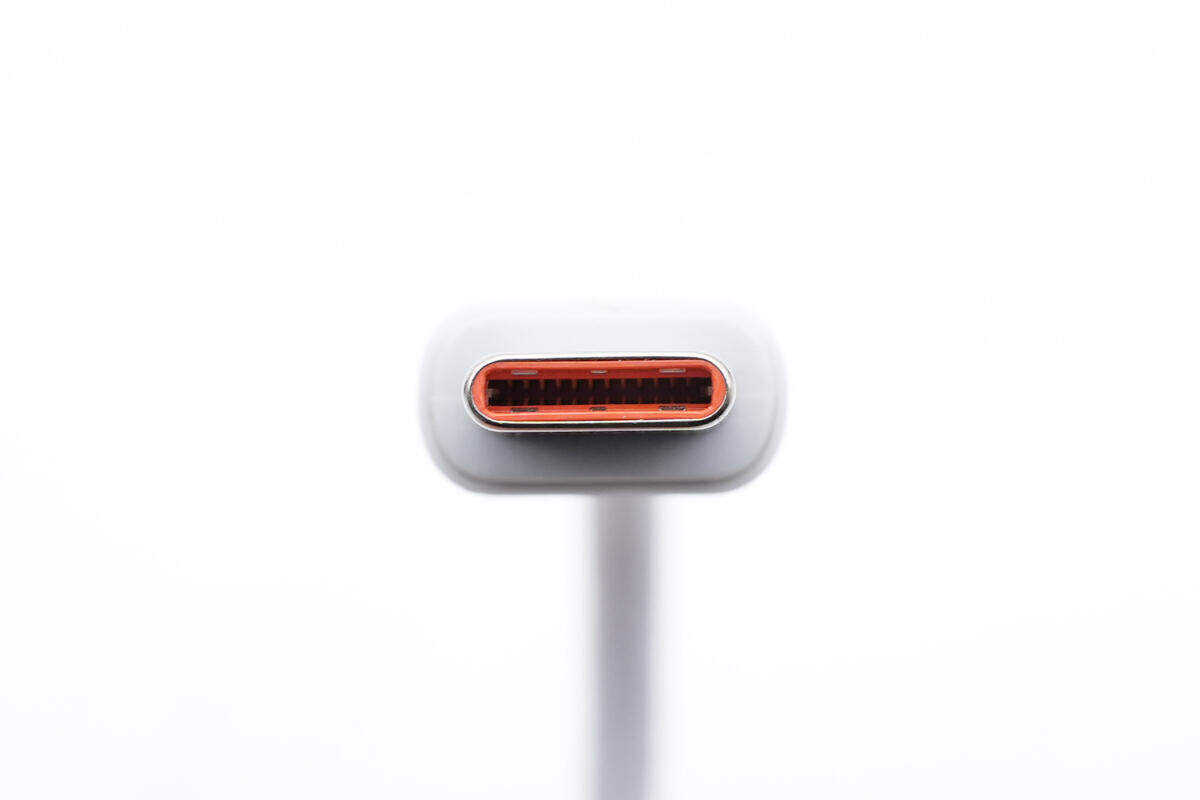
The USB-C conector has an inner orange color and a full pin design.
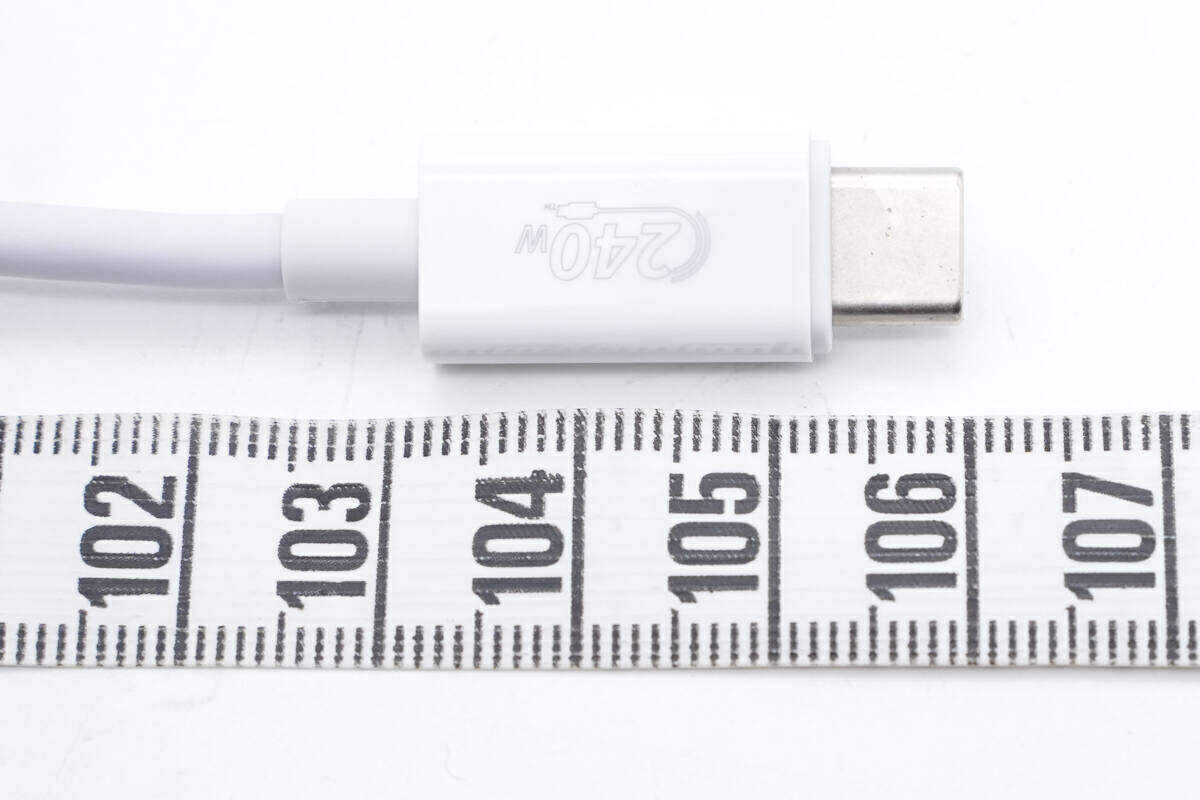
The cable length is about 1m (3' 3.37'').
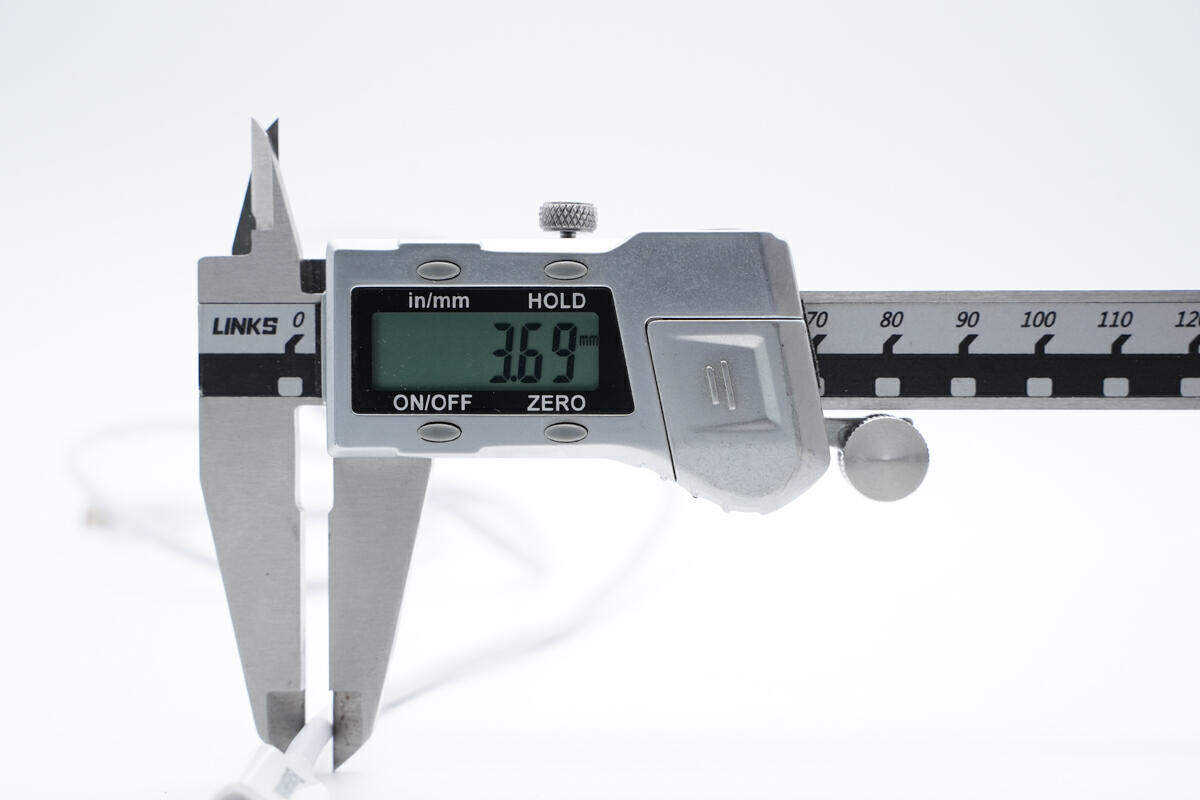
The diameter is about 3.38mm (0.13 inches).
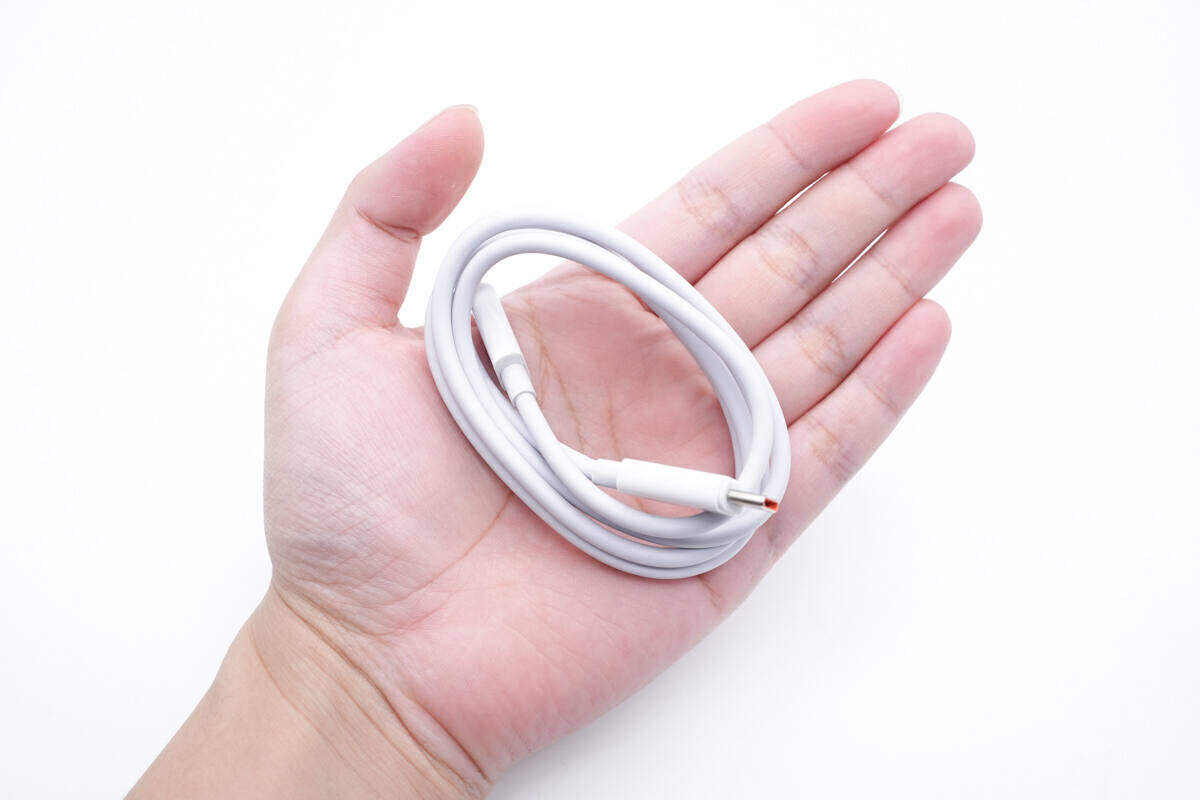
This is how it looks like on my hand.
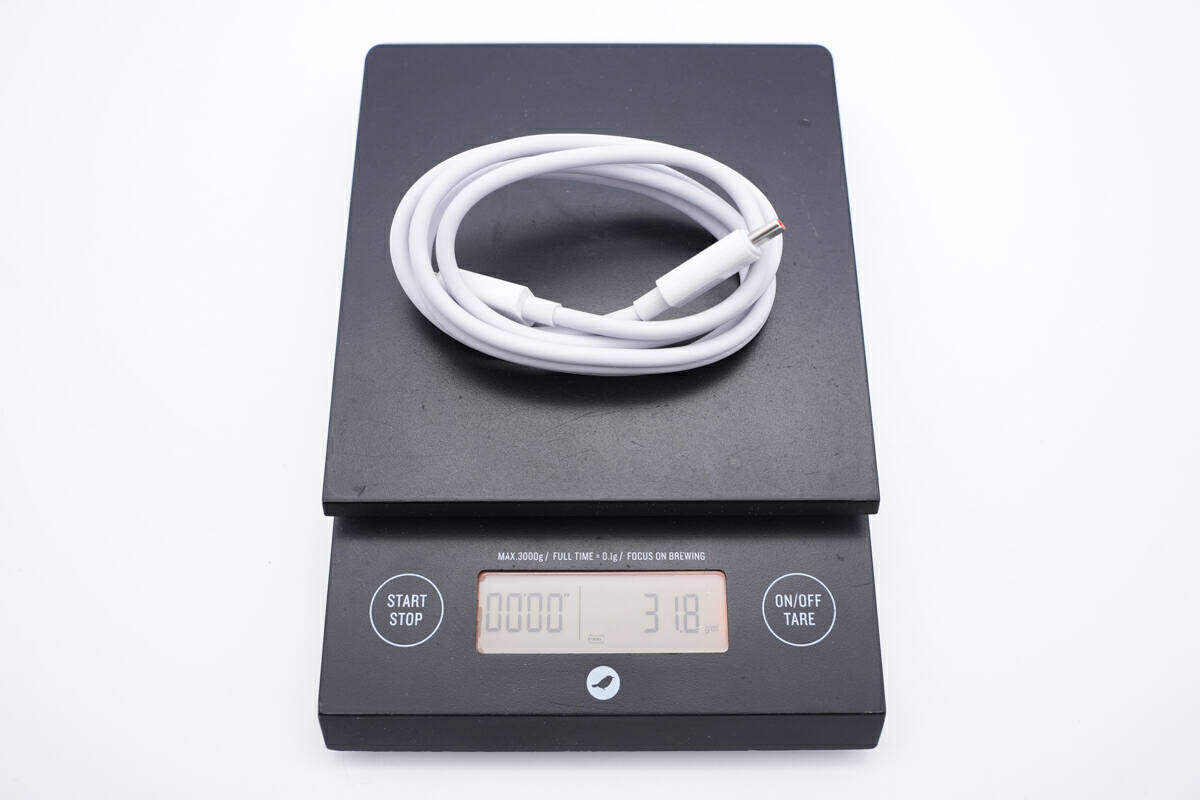
And the weight is about 32g (1.13 oz).
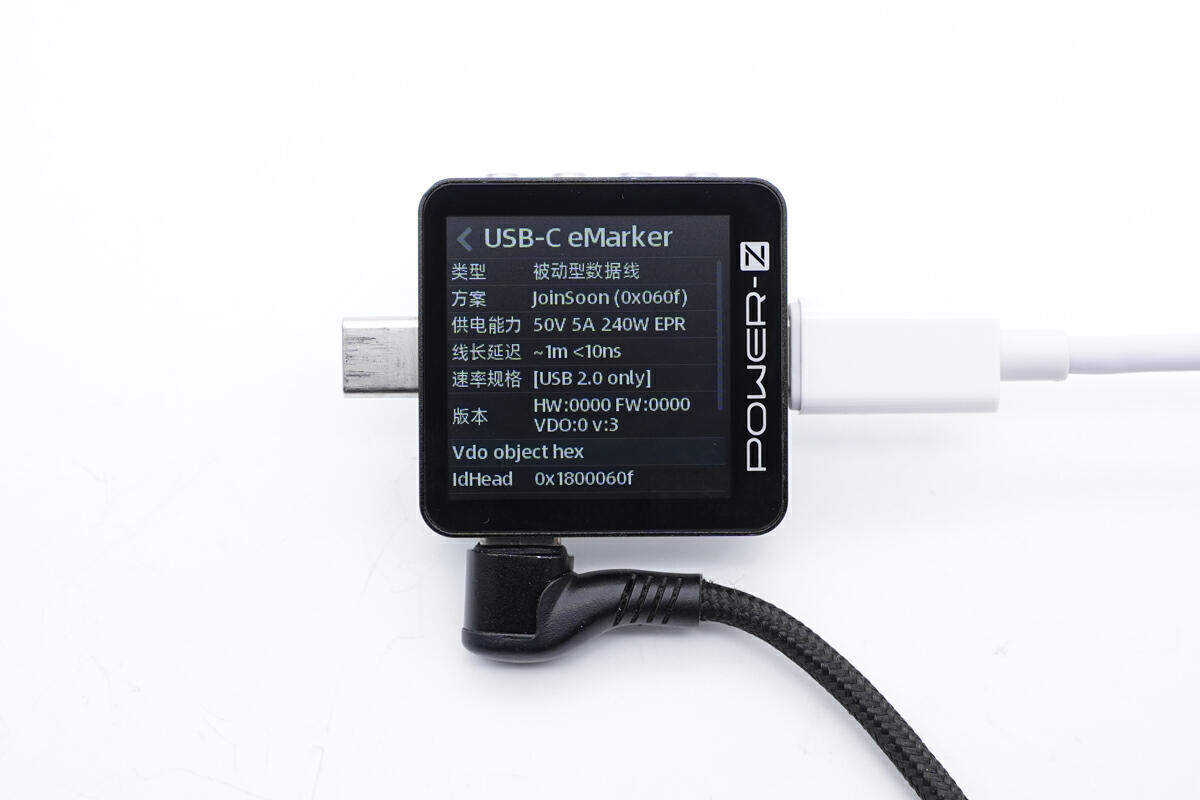
Our ChargerLAB POWER-Z KM003C shows it can support 50V 5A 240W EPR. But the data transmission speed is limited to USB 2.0.
Teardown
After the brief introduction, let's take it apart.
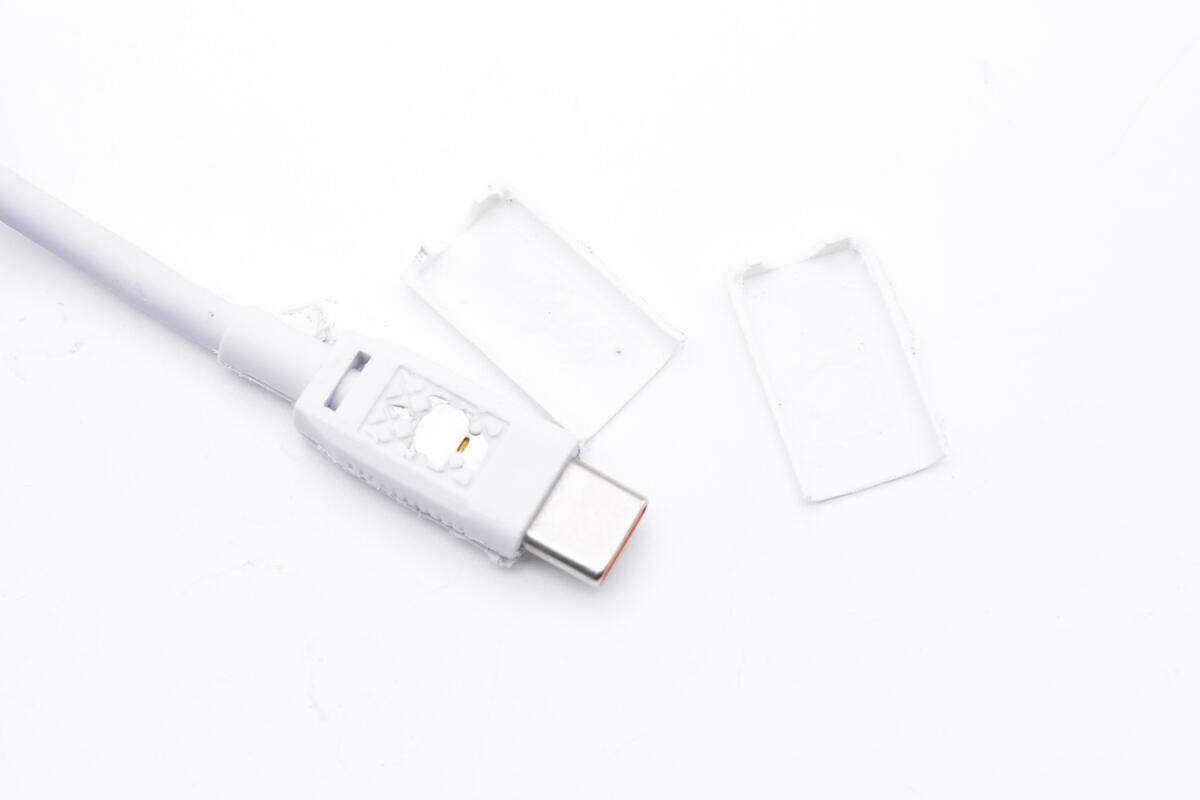
Firstly, use the cutting machine to cut off the plastic case of the USB-C connector.
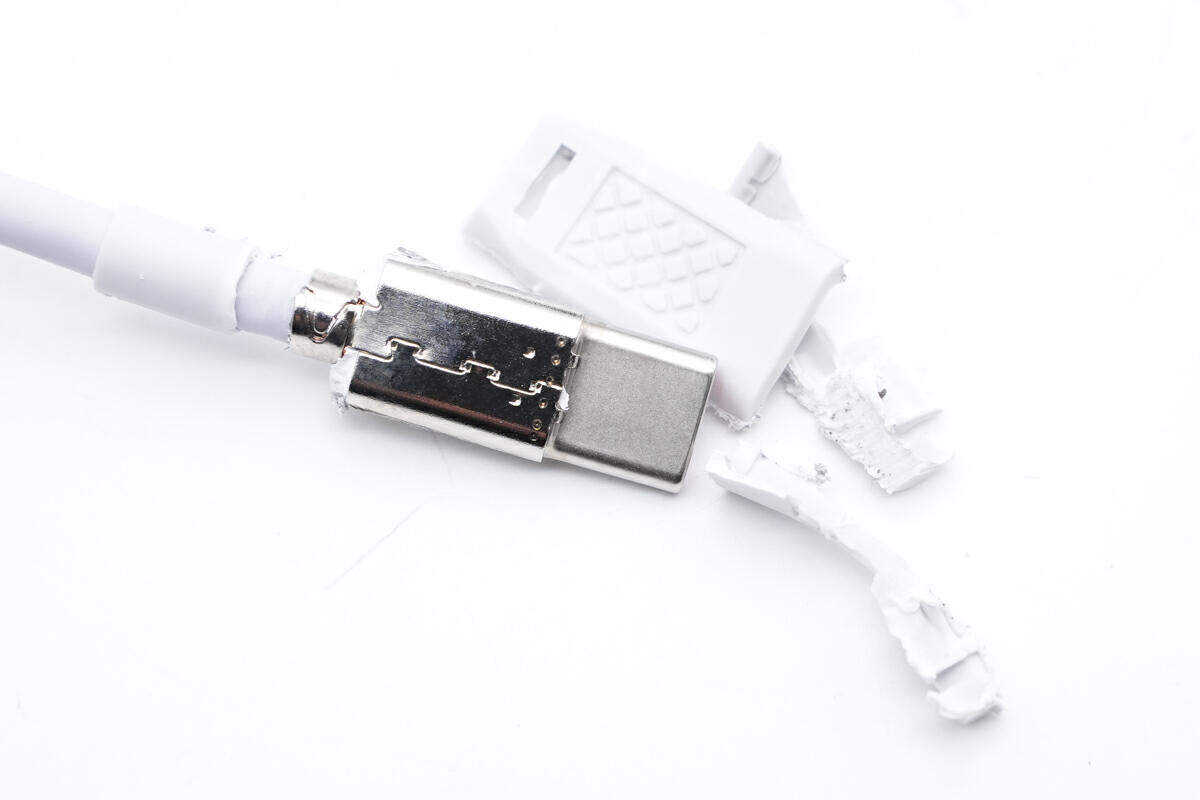
Remove a layer of compound potting that protect the connector.
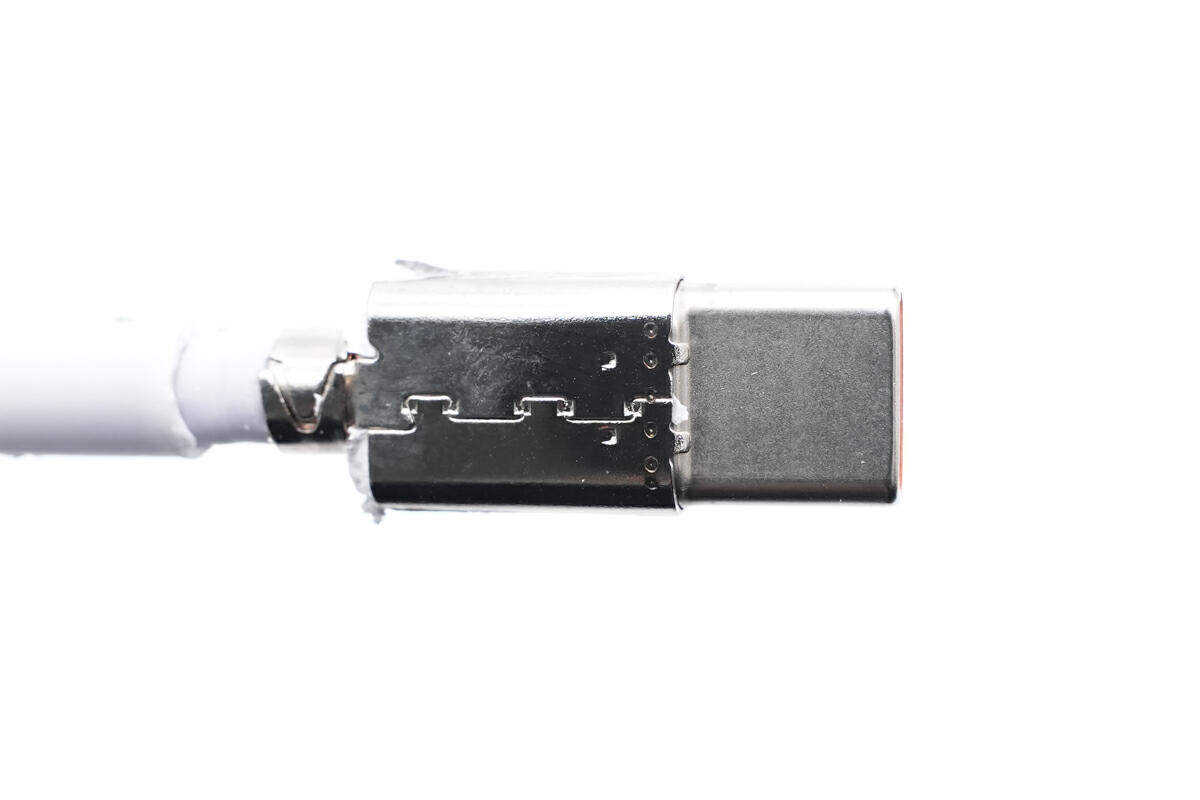
These two pieces of stainless steel sleeve can greatly improve its durability.
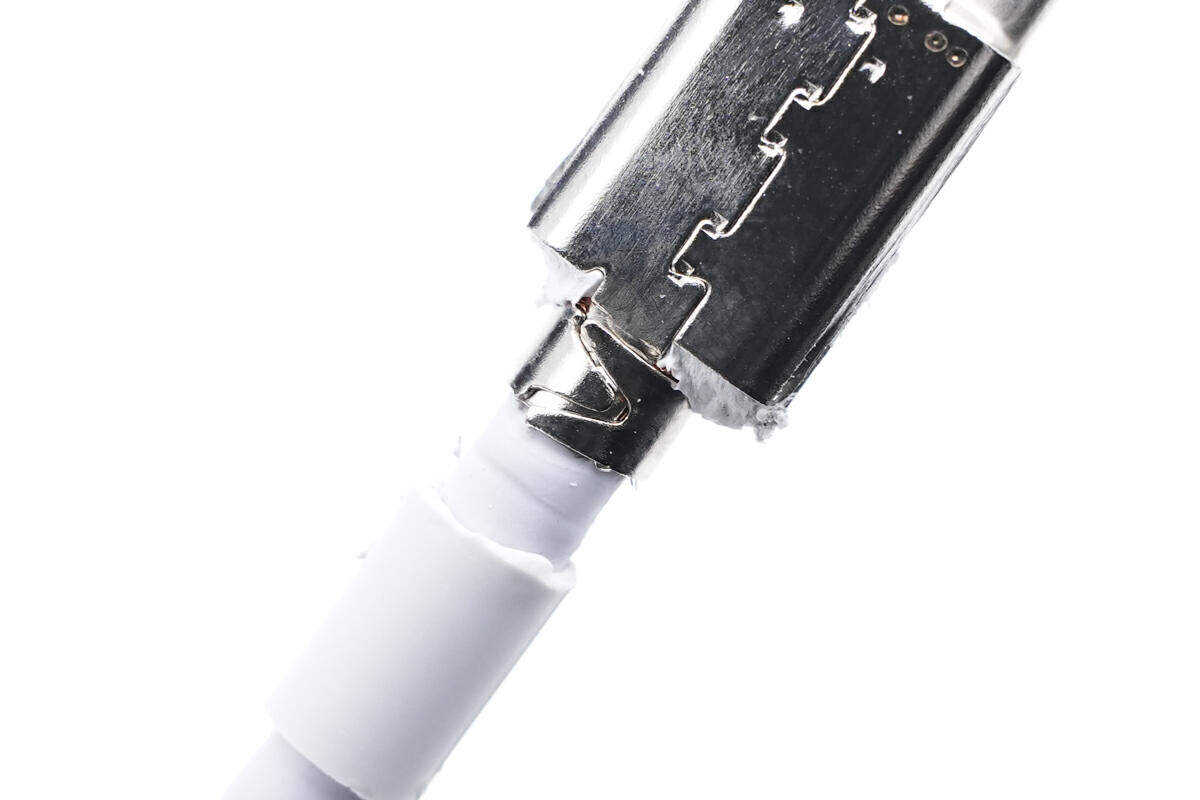
And they're fixed by dense solder joints.
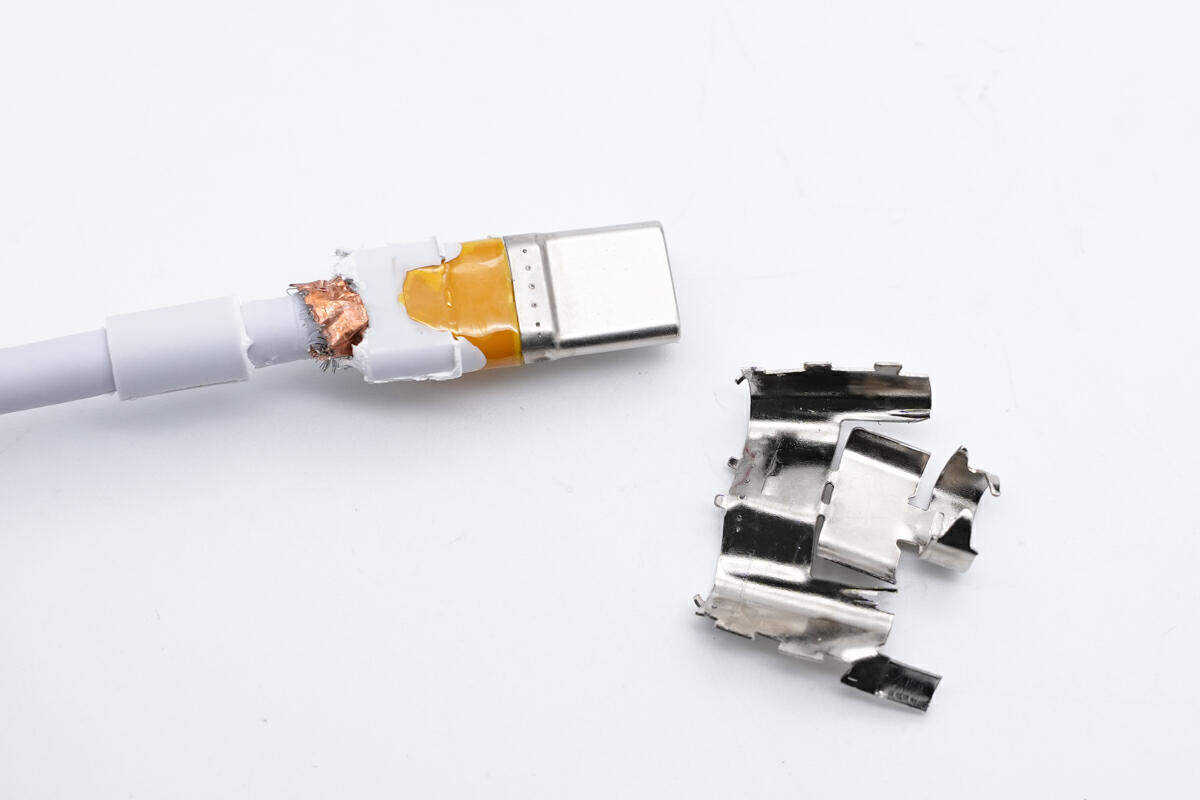
Remove the stainless steel sleeve to find another layer of silicone adhesives, and the yellow heat-resistant tape below it is used for insulation.
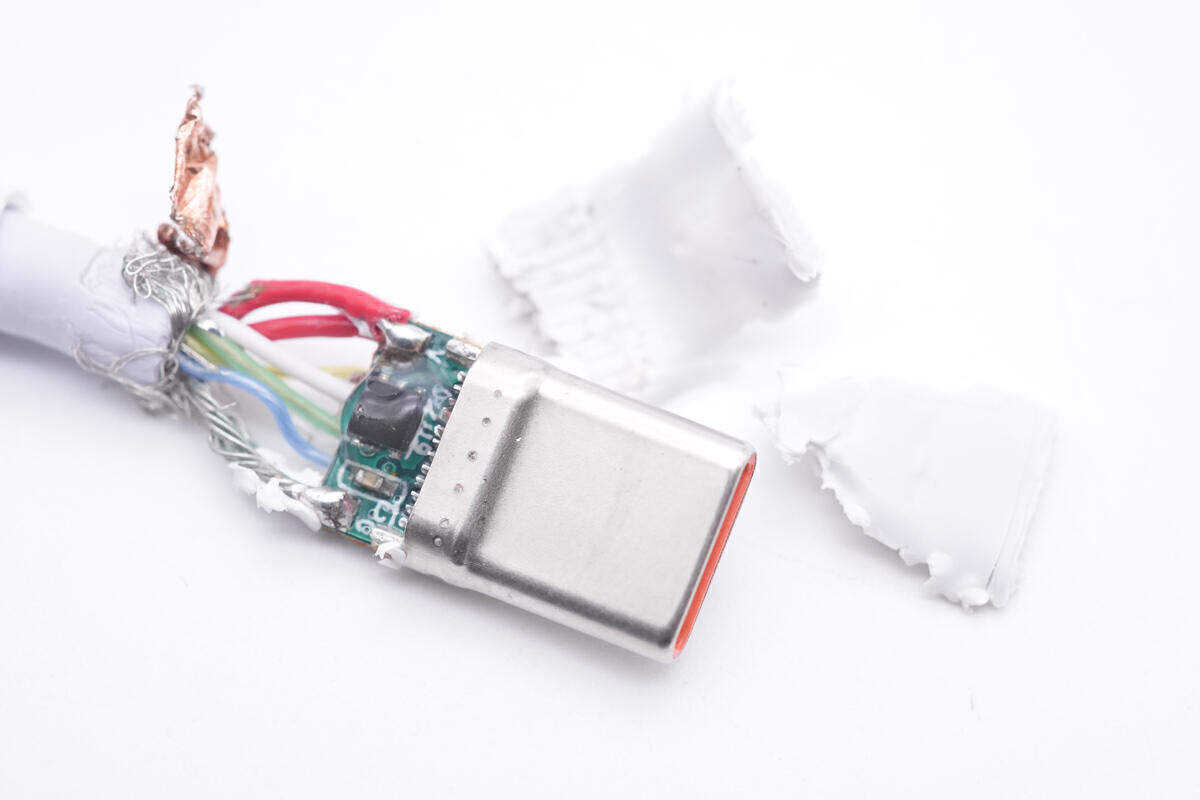
Tear off the tape and clean up the silicone adhesives, so we can finally see the wires and chips inside.
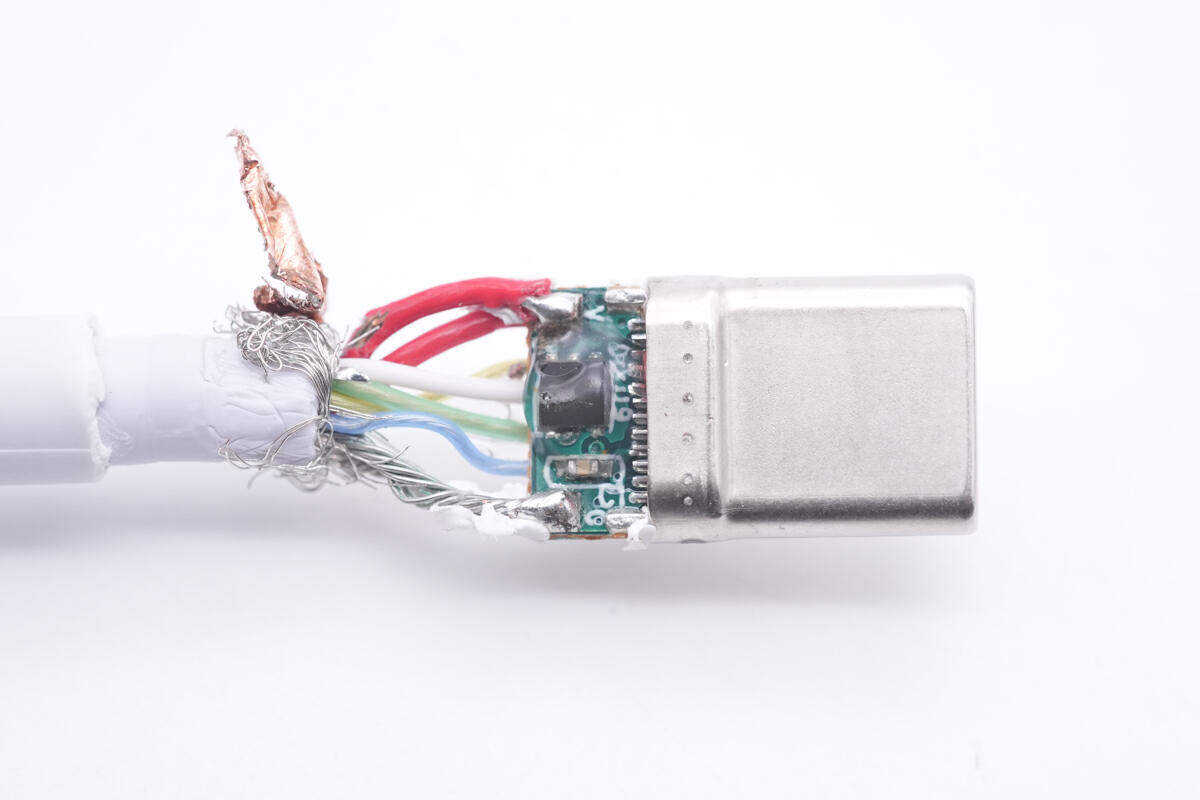
The E-Marker chip is soldered on the front, and the positive and negative wires for power supply are soldered on two sides.
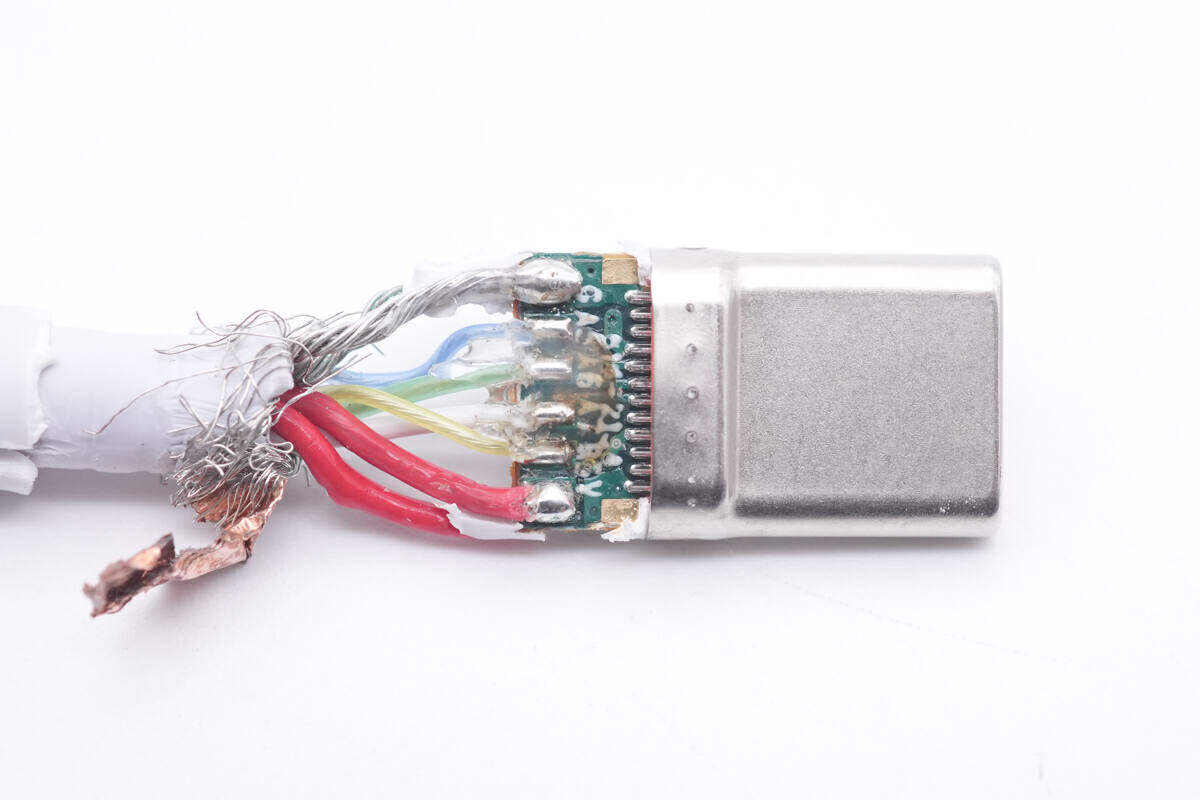
And the D+, D-, CC, and VCONN wires are on the back.
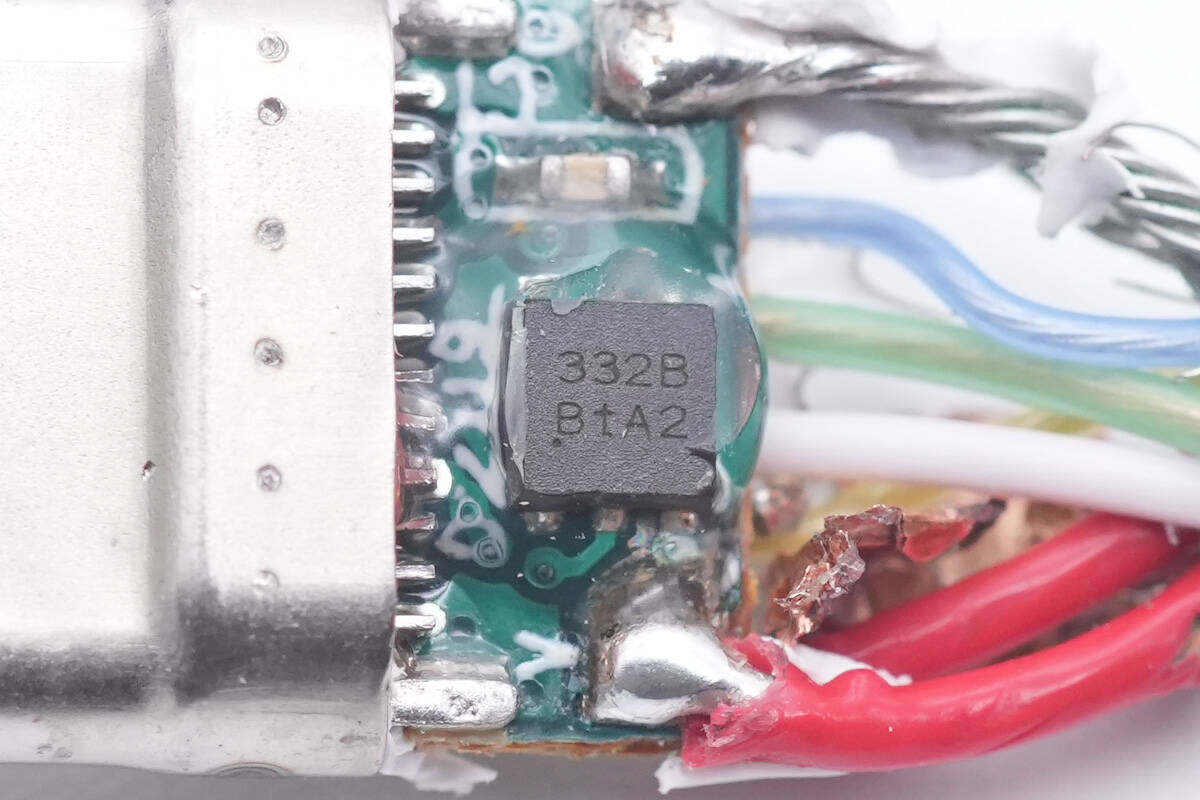
The E-Marker chip is from Hynetek HUSB332B. It is the first chip in the industry to get the USB PD3.1 eMarker certification, with a TID of 6773. It supports PD3.1 EPR 240W power transmission and USB4 Gen3 40Gbps data transmission, suitable for 240W USB Type-C to USB Type-C cables.
The HUSB332B also supports TBT3, USB3.2, USB3.1, and USB2.0. It comes with encryption function, which can be applied to device to cable identification, and its custom key facilitates customization by various manufacturers.
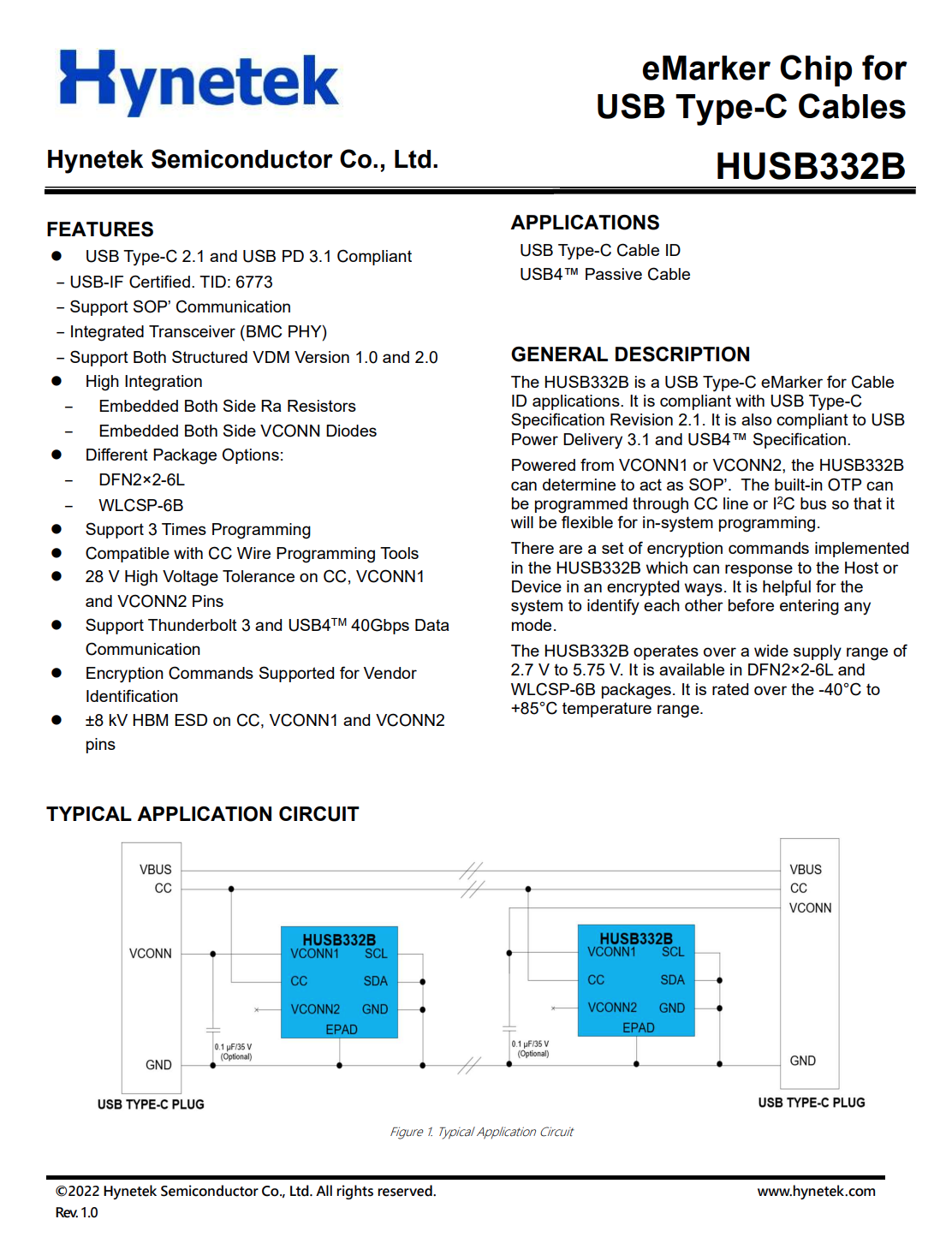
The Hynetek HUSB332B comes in two package types: 2 x 2mm DFN-6L and 0.87 x 1.42mm WLCSP-6B. CC, VCONN1, and VCONN2 pins support 28V high-voltage protection and programming through the CC wire.
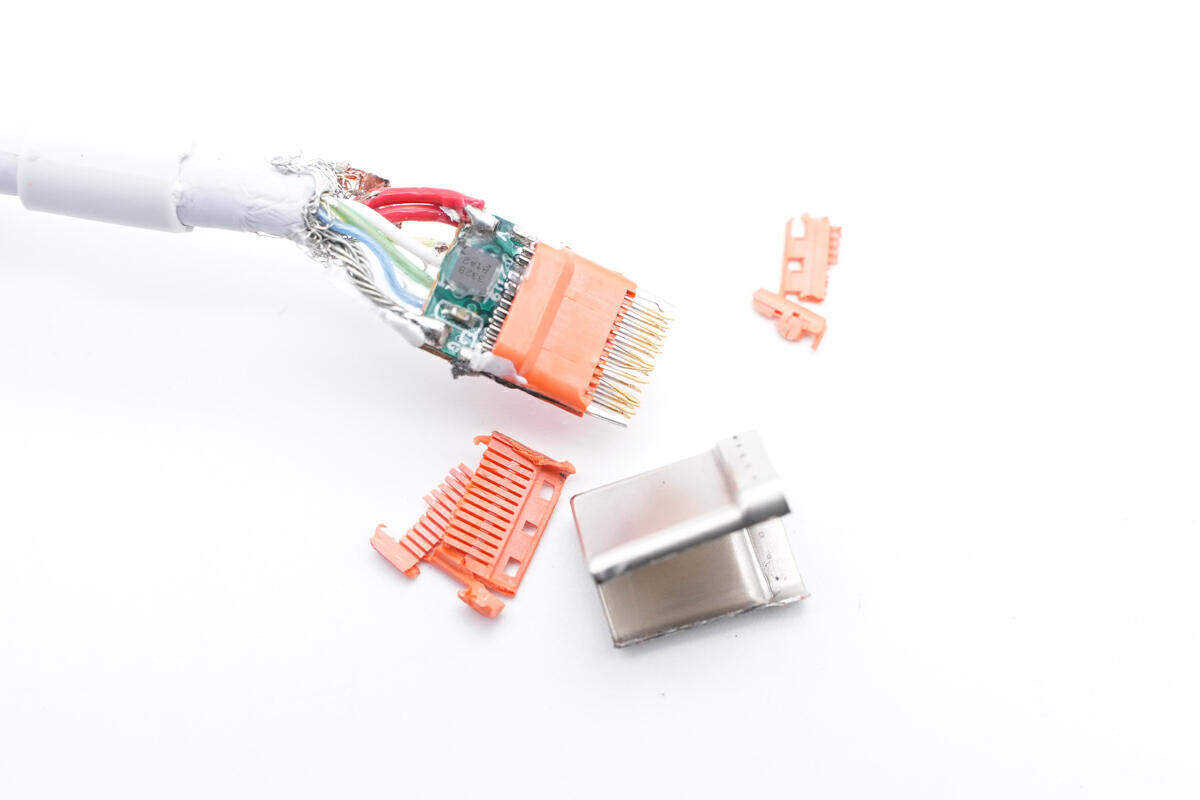
Continue to remove the stainless steel sleeve of the USB-C connector, and it adopts a "full-pin" design.
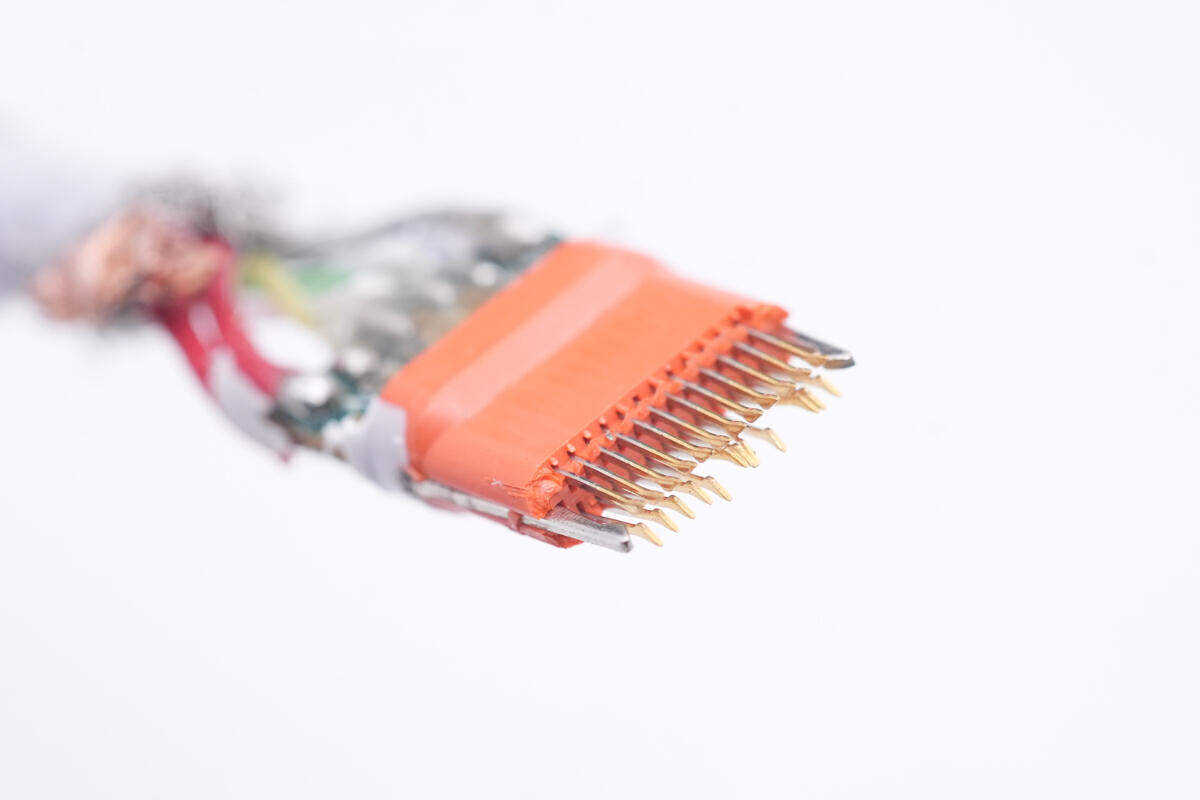
All internal pins are gold-plated.
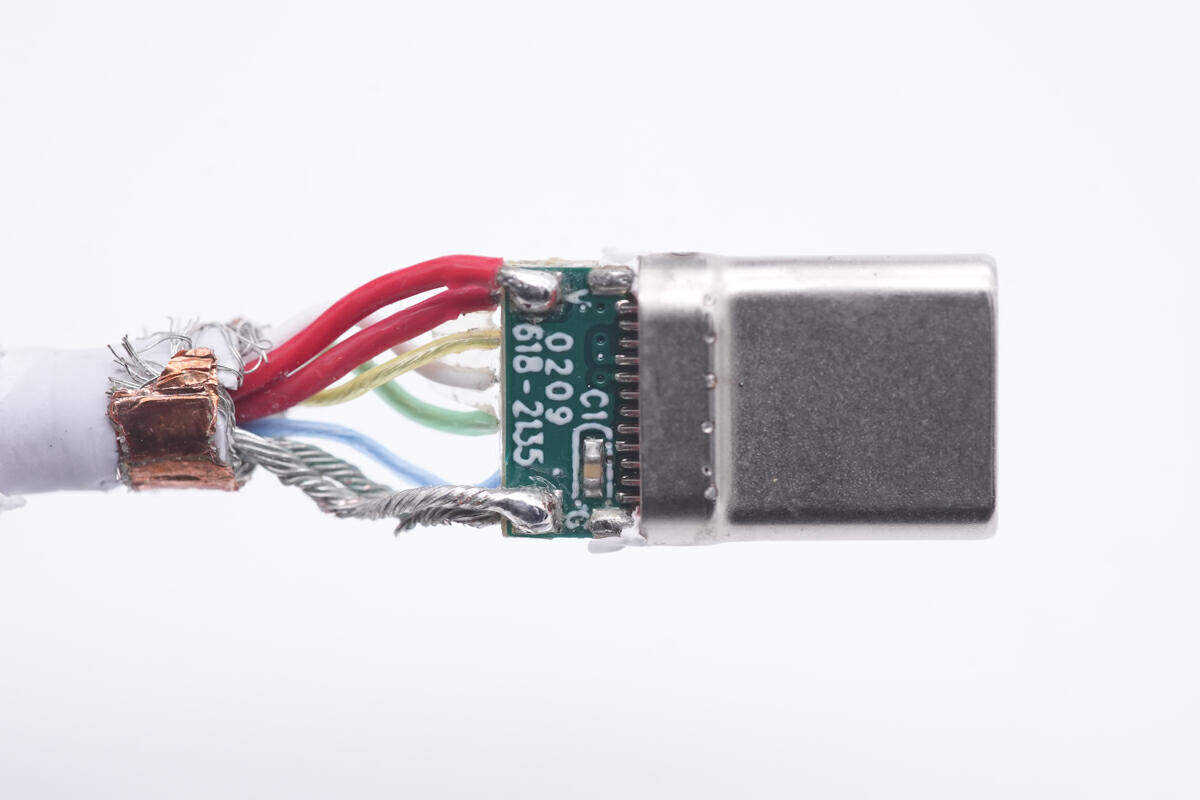
There's no E-Marker chip on the other end.
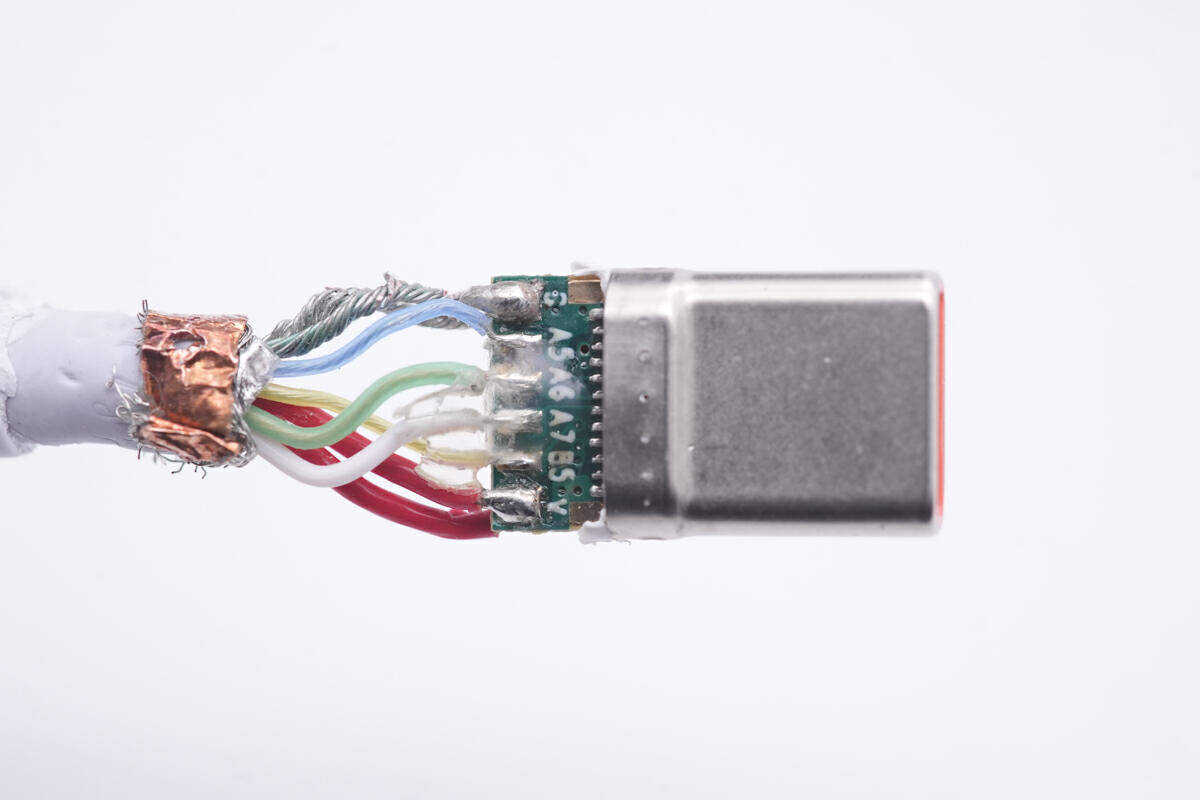
The solder joints on the back are reinforced with adhesives.
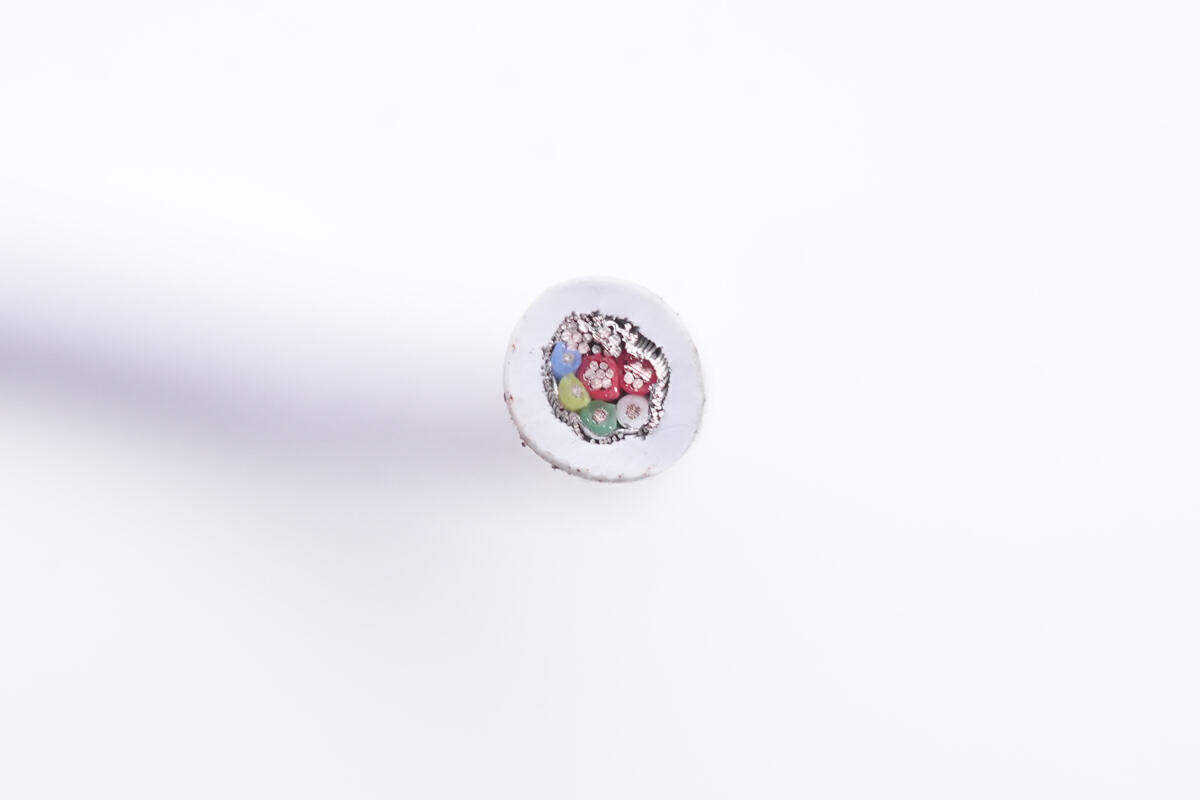
Cut open the cable for a closer look.
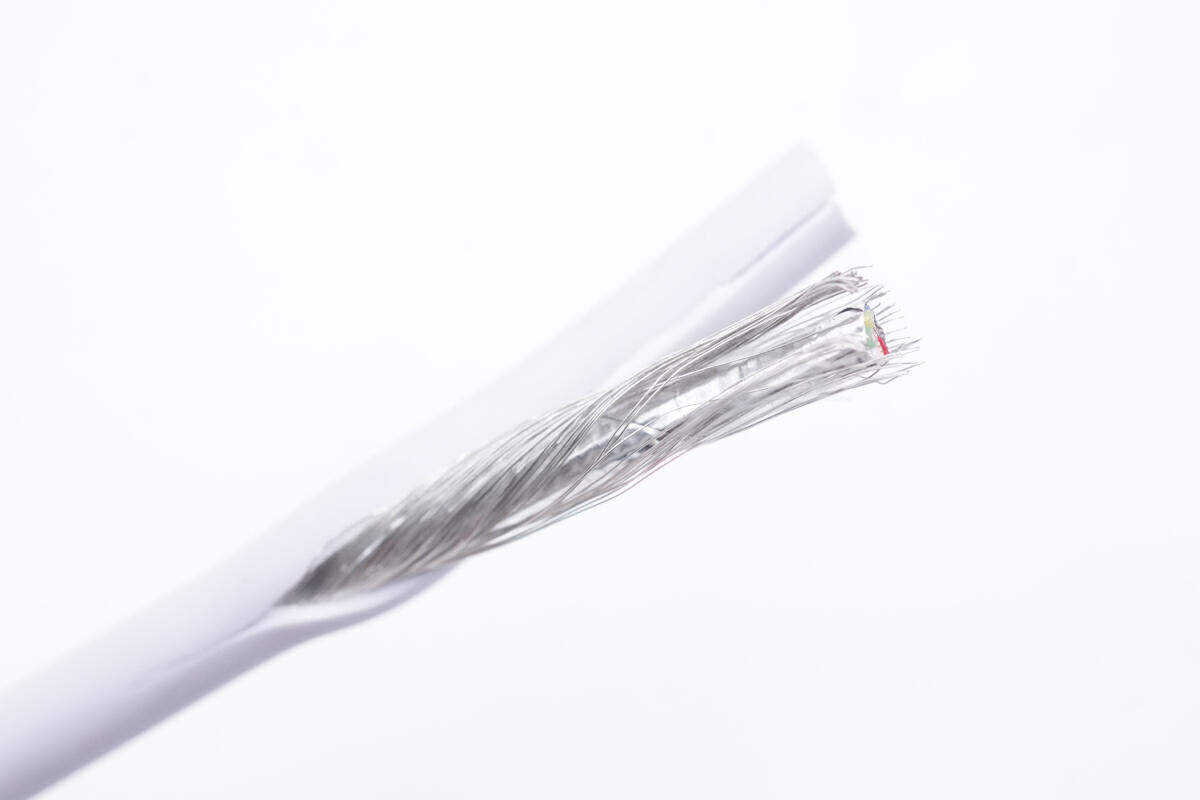
There's a layer of shielding net under it.
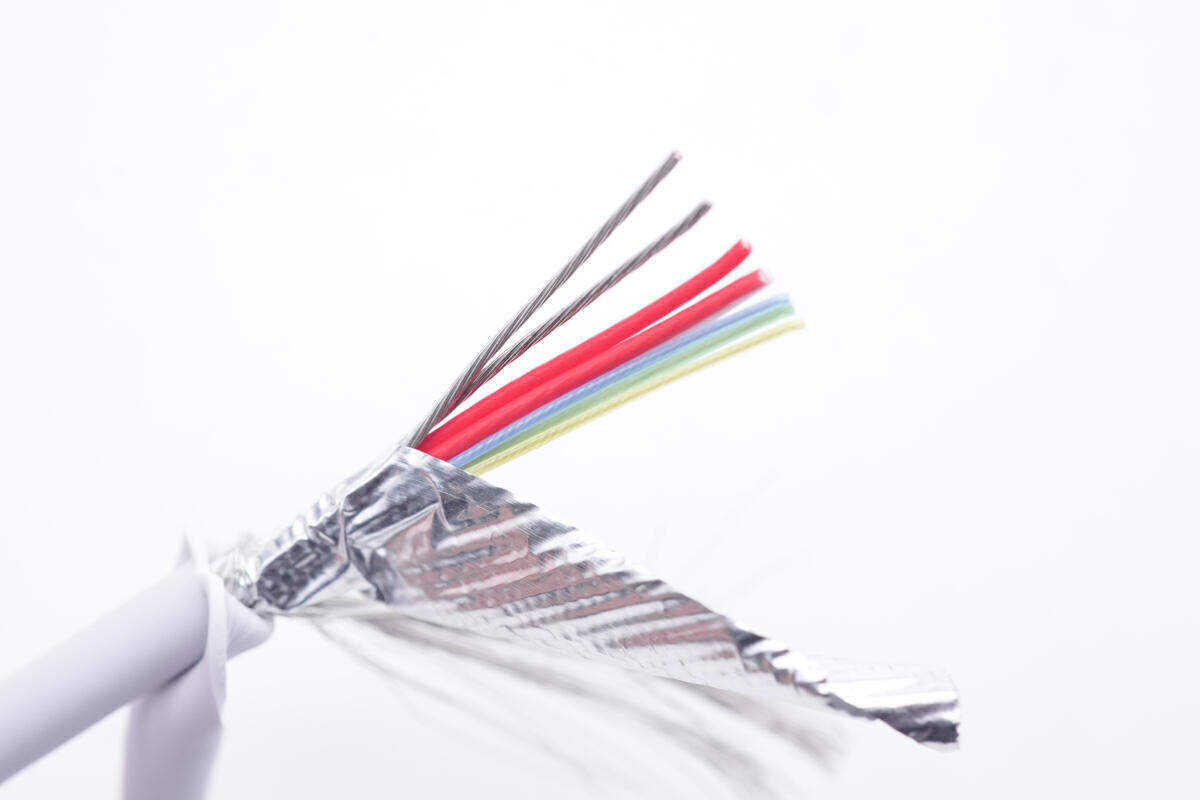
And the aluminum foil for shielding wraps all wires inside tightly.
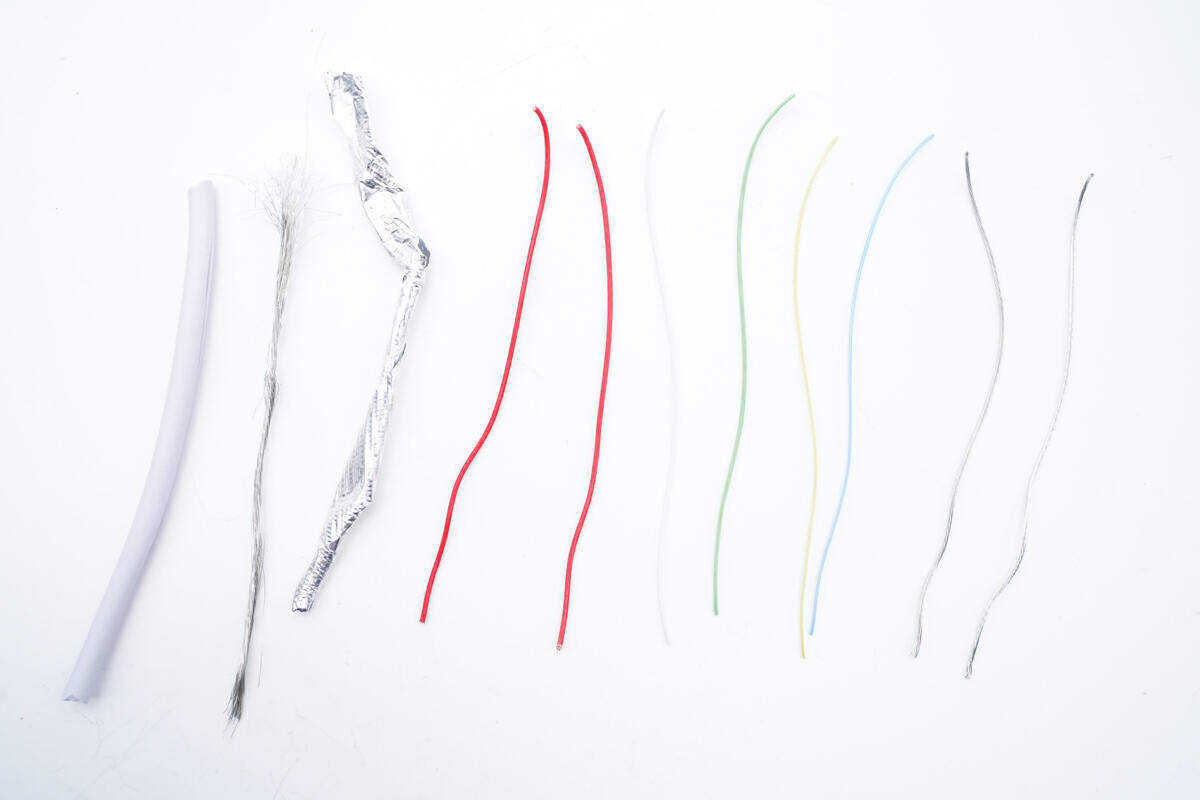
There're a total of eight wires in different colors.
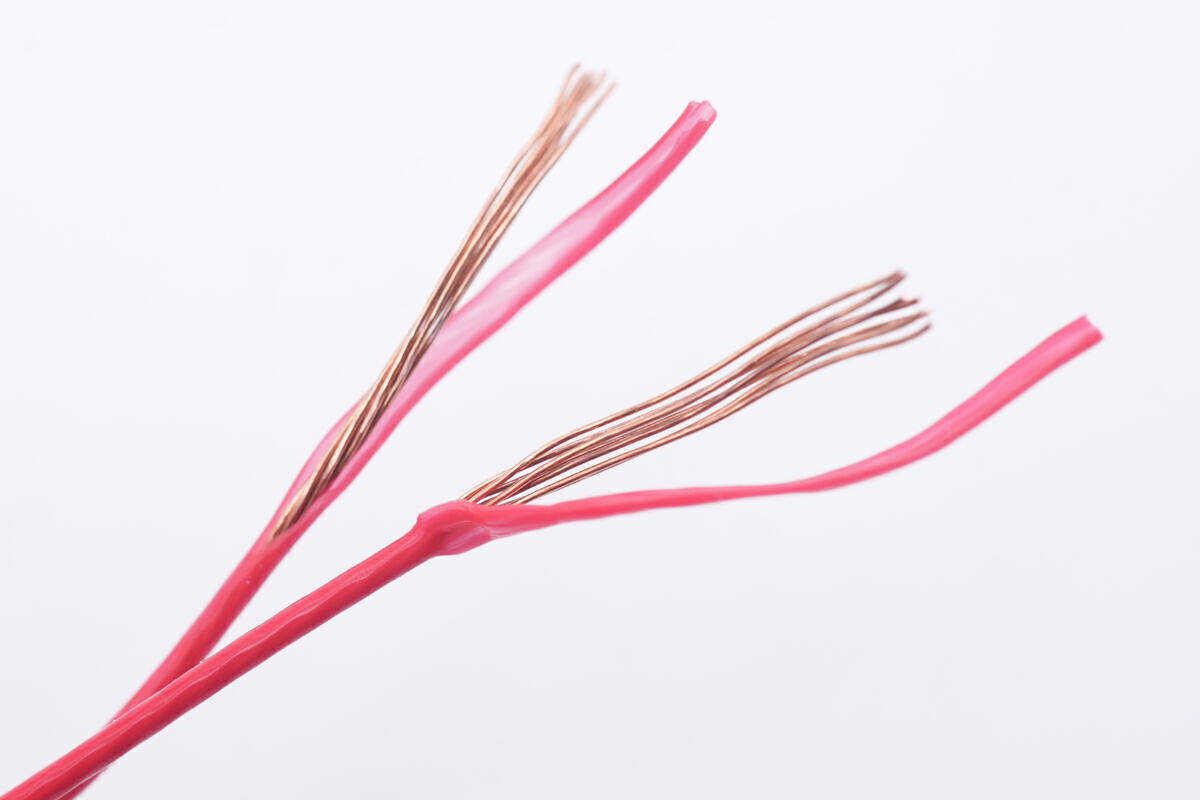
Two thick red copper wires are used for the positive power supply.
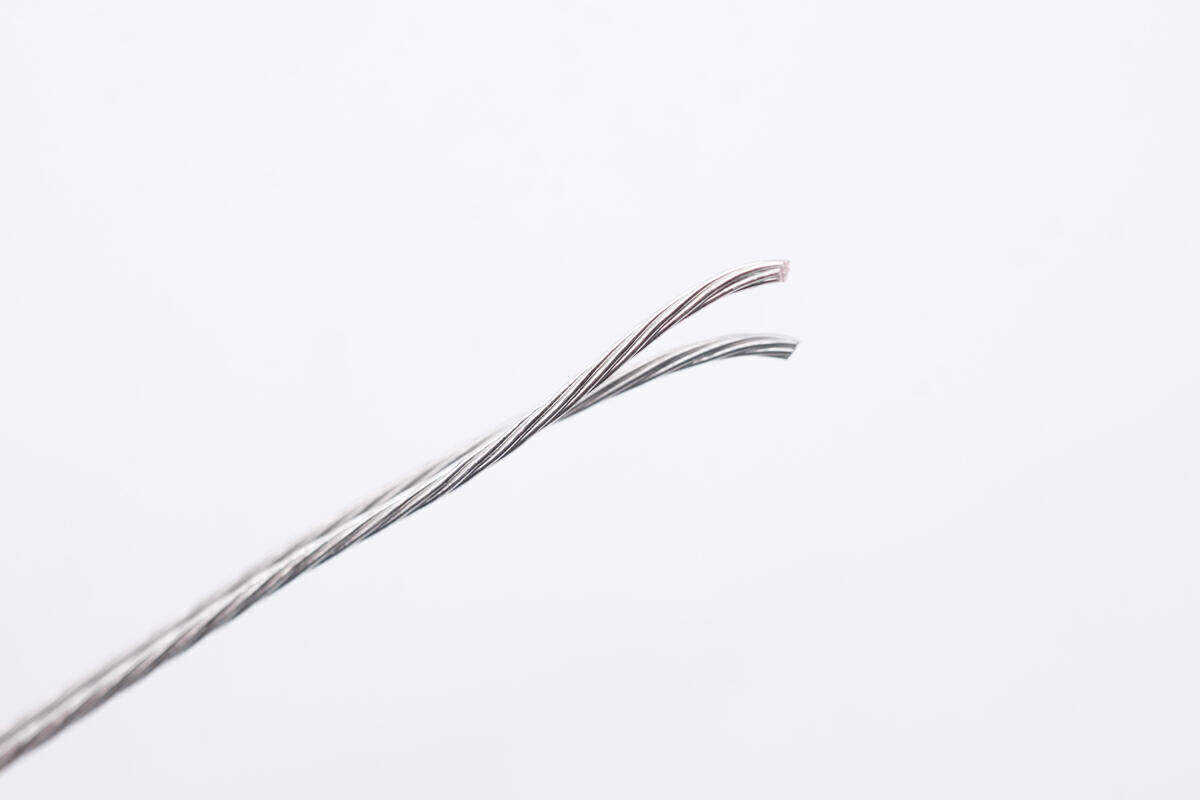
And two bare wires are used for the negative power supply, since there's no insulating layer, the cable can be made thinner.
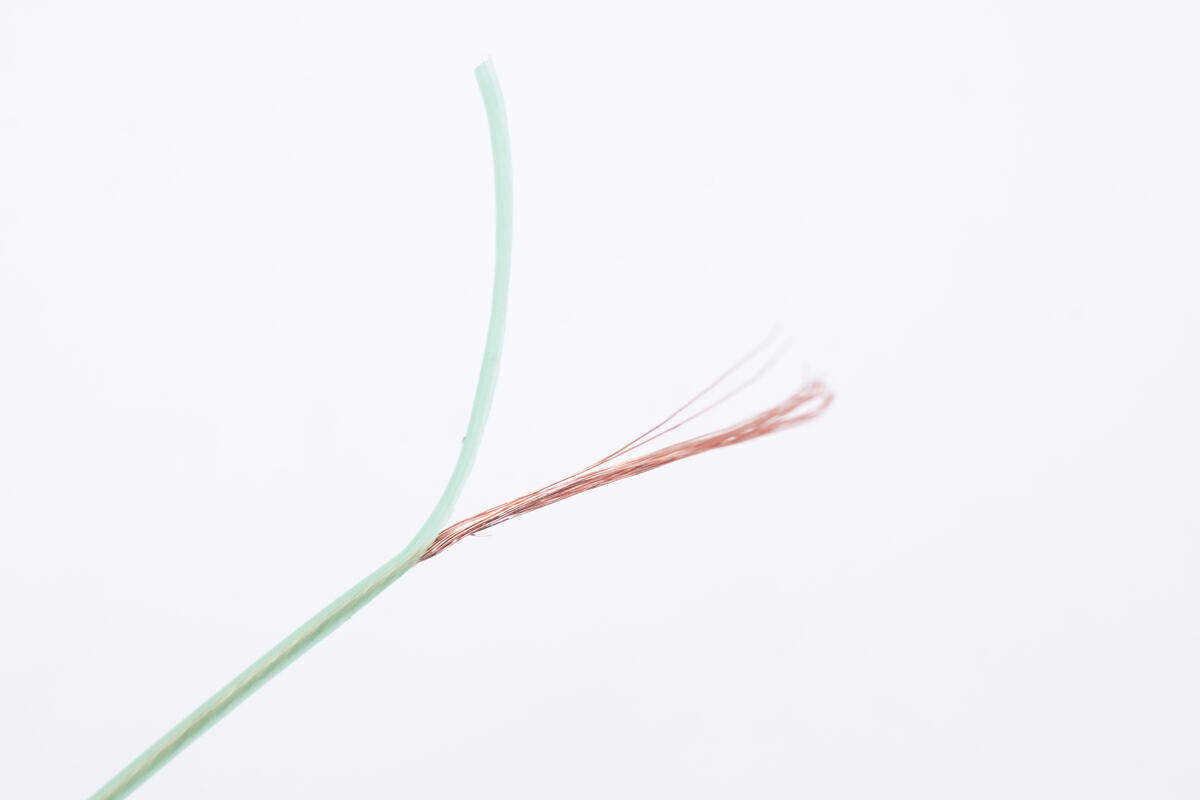
The green D+ wire is used for USB 2.0 data transmission.
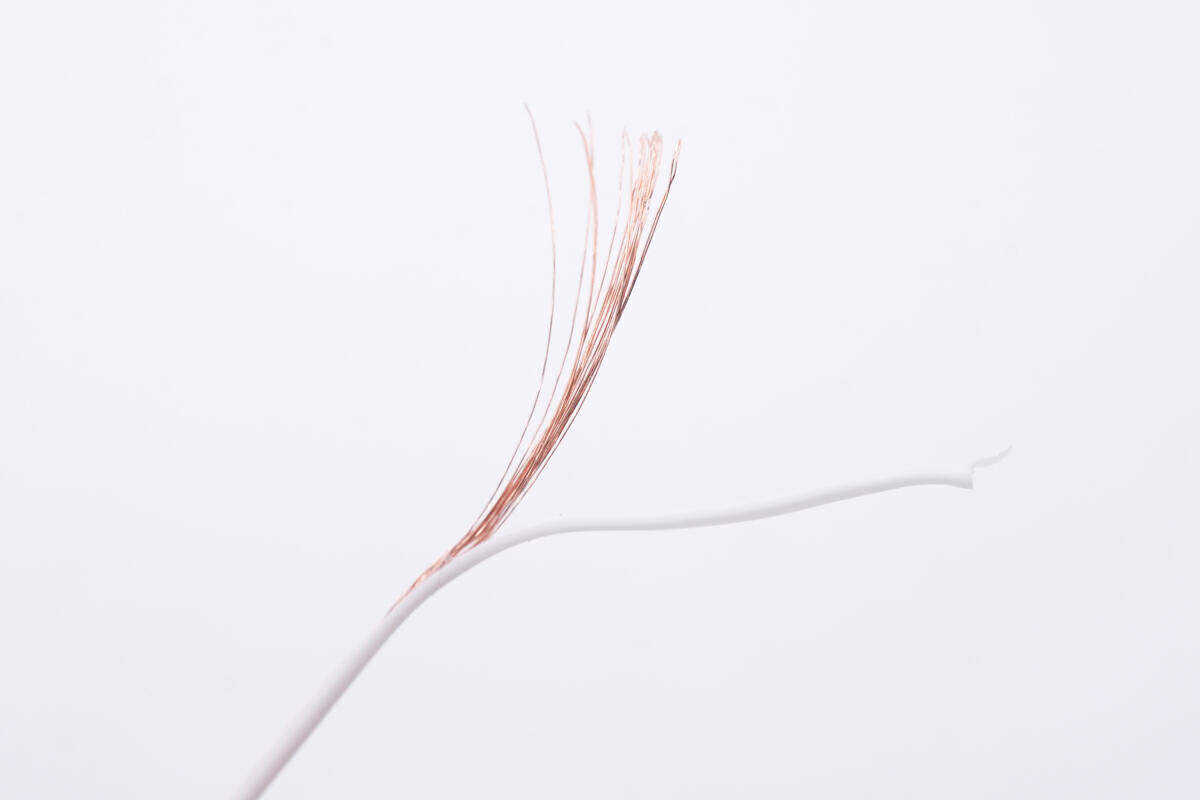
The white one is the D- wire.
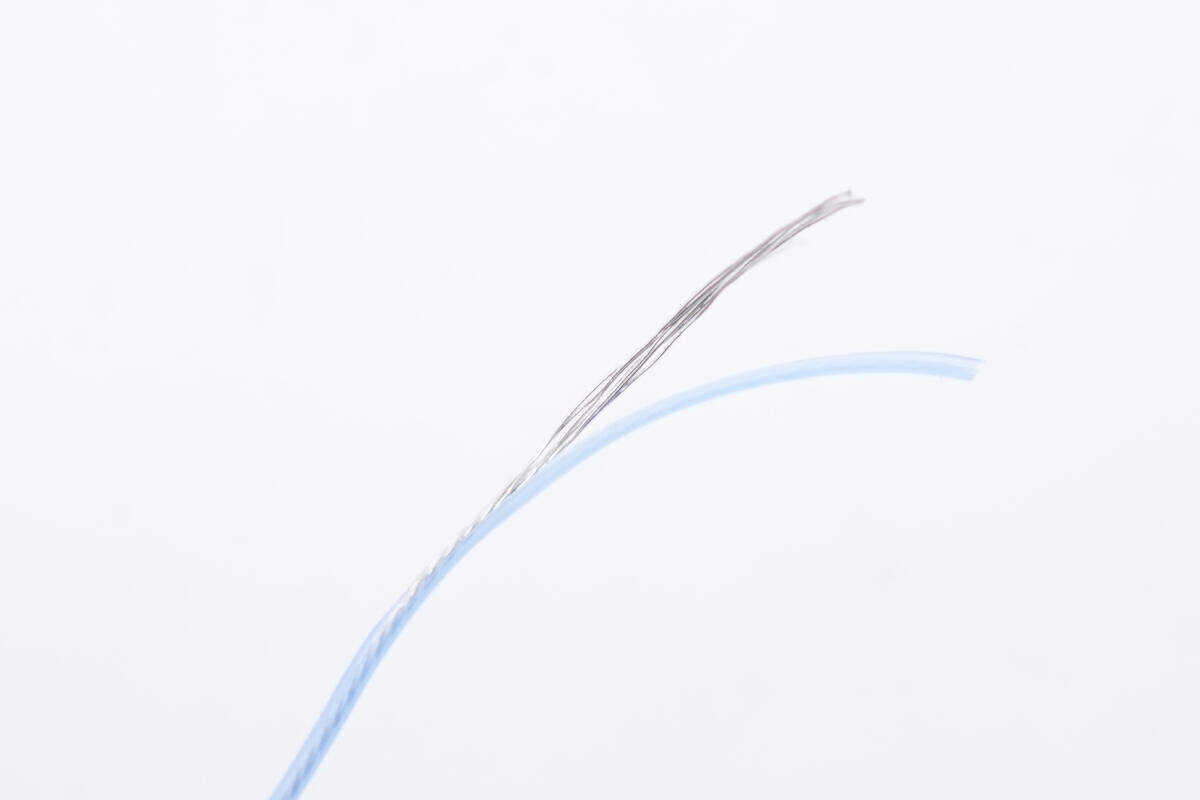
The blue one is CC wire.
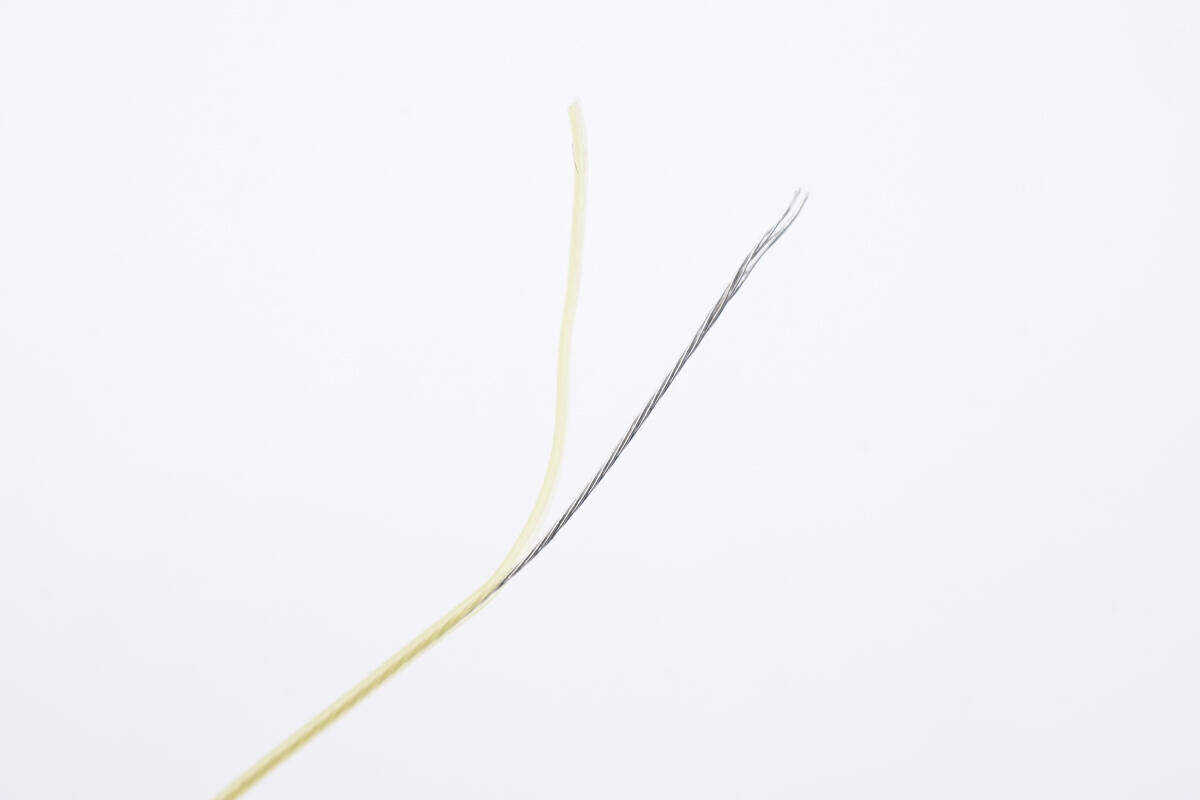
Finally, the yellow one is VCONN wire.
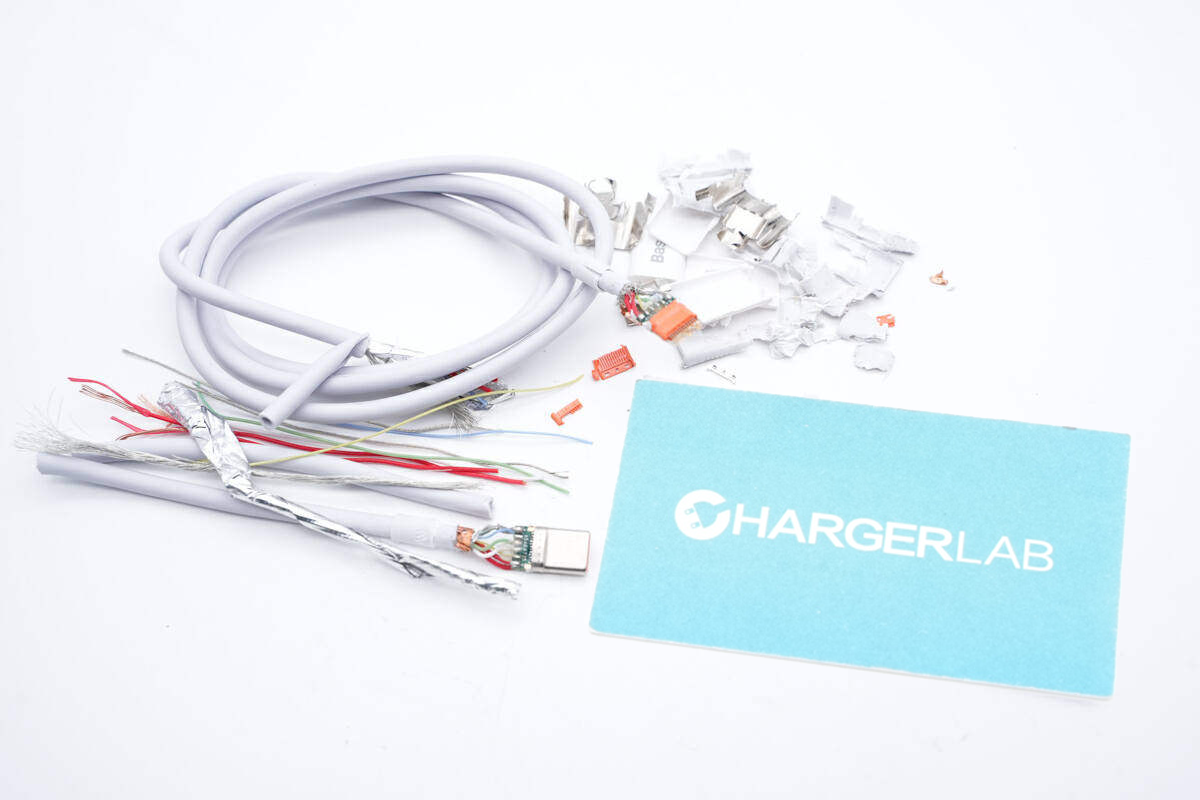
One last look at all the parts of this Baseus 240W USB-C cable.
Summary of ChargerLAB
The Baseus 240W USB-C cable boasts impressive charging capability, with a maximum power of 240W. Plus, it looks slick with a sleek plastic case, branded with the Baseus name and output stats. The orange core inside the connector signifies its fast charging abilities, while its 1m (3' 3.37'') length and USB 2.0 data transfer support make the cable versatile for all types of charging needs, from laptops to high-powered power banks.
Upon more examination, it was clear that the Baseus 240W USB-C cable is built tough, using a steel sleeve process at the USB-C end to provide added durability, while compound potting further secures its construction. Meanwhile, the cable's interior features a structure made up of a shielding net and aluminum foil, with two positive and negative wires used for power transmission. Furthermore, the Hynetek HUSB332B E-Marker chip ensures the cable's transmission capacity is top-notch.
Overall, the Baseus 240W USB-C cable is a solid and reliable option for anyone who values strong, durable charging capabilities.
Related Articles:
1. New Rating Logo | Teardown of Baseus 240W USB-C Cable
2. Unboxing of ChargerLAB POWER-Z AK001 240W Test Cable (1.5M/5FT)
3. Support up to 240W | Teardown of Newest PD3.1 Dual USB-C Cable

